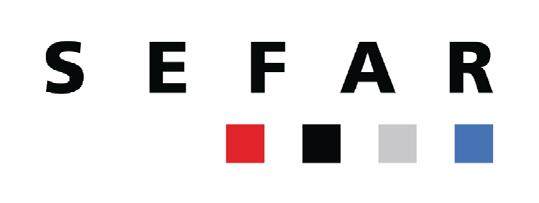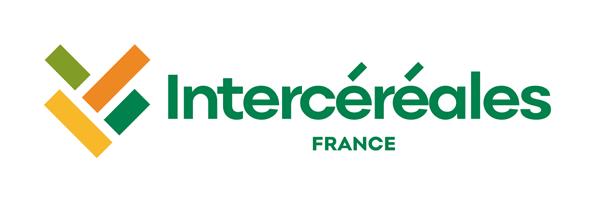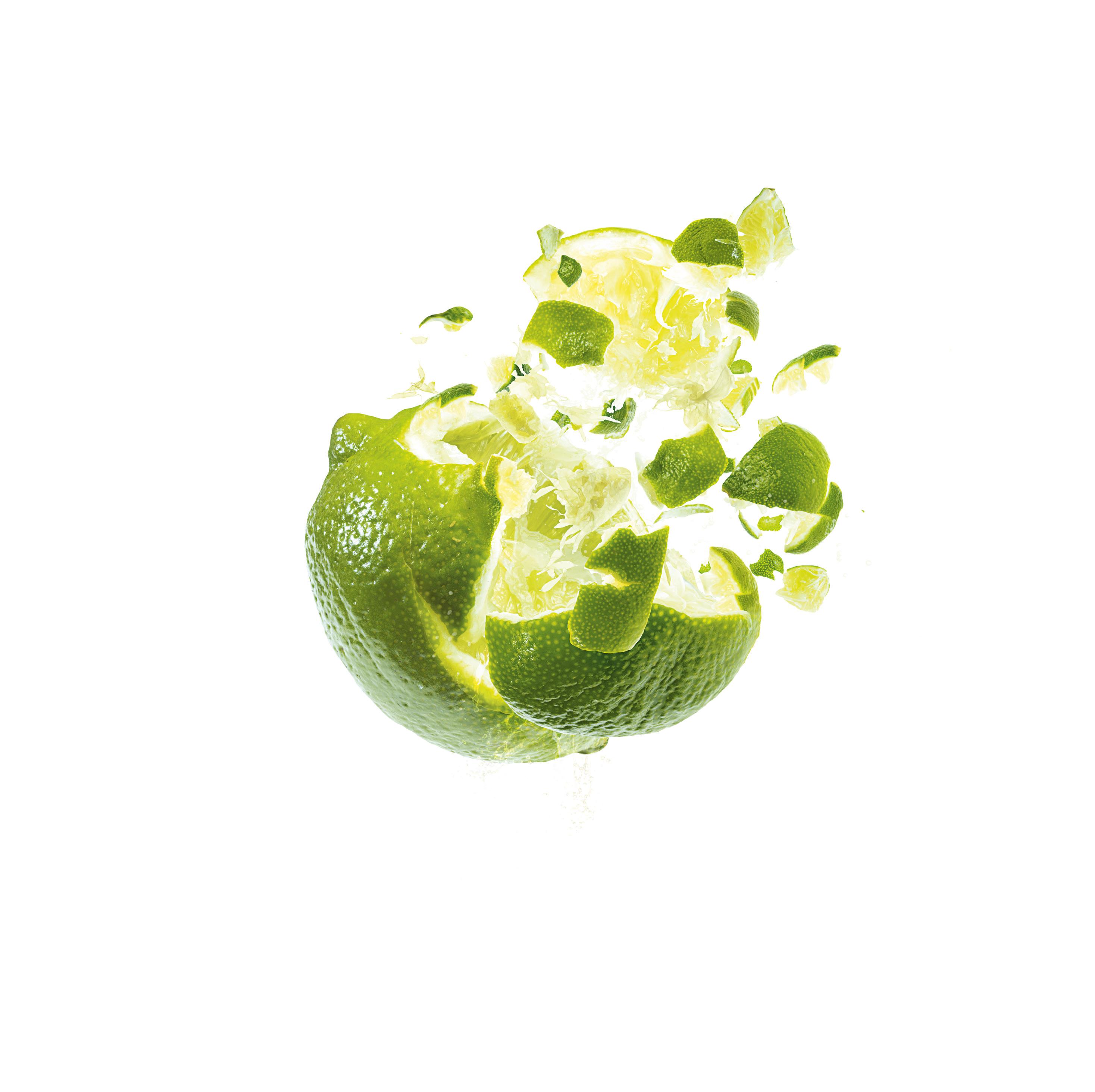




















Food security in Africa continues to be elusive despite the continent being home to 60% of the world’s arable land. It is surprising that Africa, a country of 1,119 million hectares of agricultural land relies on Ukraine, a country with only 42 million hectares of land. Its painful to see millions of people face hunger and lose their lives while so much agricultural potential lies idle year in year out.
One of the reasons for Africa’s failed agricultural sector is over reliance on imports. When country’s are used to cheap imports, incentives for local production are nonexistent, exposing millions of locals to uncertainties of the global market.
In theory, localizing key food supply chains could have enormous benefits to the economy. In practice, it can be harder to achieve due to a myriad of factors including low productivity, fluctuating production, inconsistent produce quality, the high cost of production, inefficiencies along the value chain and a large informal sector.

Nigeria, a country of over 200 million people, has however made attempts at localizing its supply chains and remarkably reduced reliance on imports
as a result. FrieslandCampina WAMCO, a local subsidiary of Dutch multinational dairy cooperative Frieslandcampina, has been one of the champions of this initiative.
Through its Dairy Development Programme, the dairy has invested heavily in Nigeria, increasing raw milk production to 40,000 litres per day and empowering over 7,000 dairy farmers. For its efforts in putting Nigeria’s dairy sector on the map, FrieslandCampina

WAMCO was chosen as the 2022 dairy company of the year. Read an indepth piece of the company’s activities in Nigeria on page.36

Our main feature Maisha Beverages company is a story of a company out to give African consumers wonderfully refreshing, incredibly tasty, and astonishingly affordable beverage alternatives to what they have been getting for the last 60 years.
"At Maisha Beverages, we believe in giving consumers a world-class product at an affordable price," affirms Brij Raja, Maisha Beverages CEO. "We want people to enjoy superb quality drinks and save their shilling."
Elsewhere we give you a deep dive into Nigeria’s alcoholic beverage sector and a detailed review of the food industry in Egypt. We also have interesting insights on the No and low alcohol-free beverages, Salt reduction, and Specialty fats.
We hope you enjoy your read.
Paul Ongeto Editor, FW Africa













 ASHISH PANDE Country Head, Olam Agri, Nigeria
ESSAM EL-MADDAH HR & General Secretary Director, Danone Egypt & North East Africa
JUSTIN ARCHER COO East Africa & Group Head of Sustainability, Sucafina SA
CLAUDIA CASTELLANOS Managing Director, Black Mamba
JOACHIM WESTERWELD Executive Chairman, Bio Food Products
MILLICENT A. ADOBOE Co-Founder, Achiever Foods Ghana
CAESAR ASIYO Chief Development Officer, Victory Farms
SAINT-FRANCIS TOHLANG Corporate Affairs Director, Nestle East & Southern Africa
NICO ROOZEN Honorary President, Solidaridad Network
ROZY RANA Managing Director, Dormans Coffee
GAURAV VJ CEO, 260 Brands
BRETT THOMPSON Co-Founder & CEO, Mzansi Meat
ASHISH PANDE Country Head, Olam Agri, Nigeria
ESSAM EL-MADDAH HR & General Secretary Director, Danone Egypt & North East Africa
JUSTIN ARCHER COO East Africa & Group Head of Sustainability, Sucafina SA
CLAUDIA CASTELLANOS Managing Director, Black Mamba
JOACHIM WESTERWELD Executive Chairman, Bio Food Products
MILLICENT A. ADOBOE Co-Founder, Achiever Foods Ghana
CAESAR ASIYO Chief Development Officer, Victory Farms
SAINT-FRANCIS TOHLANG Corporate Affairs Director, Nestle East & Southern Africa
NICO ROOZEN Honorary President, Solidaridad Network
ROZY RANA Managing Director, Dormans Coffee
GAURAV VJ CEO, 260 Brands
BRETT THOMPSON Co-Founder & CEO, Mzansi Meat
Maisha Beverages Company is out to give African consumers wonderfully refreshing, incredibly tasty, and astonishingly affordable beverage alternatives to what they have been getting for the last 60 years.


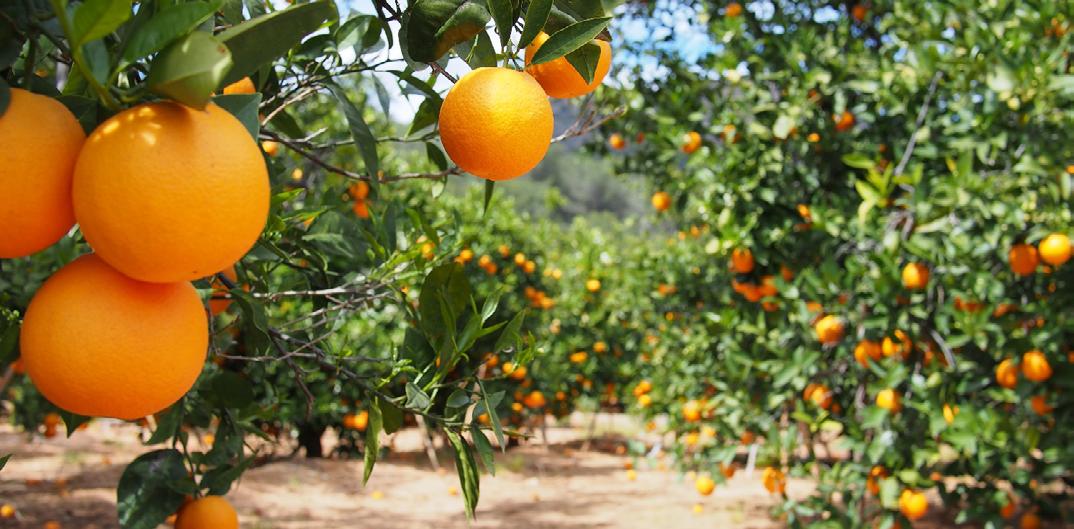












Carcass











jowl

















What makes the Art of European Meat? It’s that exceptional combination of Craftsmanship, Food Safety and Tailor-Made Service. And that’s what the Belgian meat suppliers truly master. As one of Europe’s leading meat producers and exporters, they turn their expertise into an art form. Up to you to savor it.












Find your Belgian meat master at artofmeat.eu
 Hindquarter
Hindquarter
Voltic Ghana : Hollandia Choco Malt Drink in the country | Kevian Limited : Apple Ginger Boost Fruit Drink |Nestlé South Africa : medium fat dairy powder drink | Brookside Dairy: Fortified Milk










| Richester Foods: Chewing gum | Dairy Group South Africa: UHT milk, butter and dairy liquid blends
• High consumption of ultra-processed foods exposes you to dementia risk, new study finds
• CCBA Kenya injects US$2m into wastewater treatment plant upgrade
• Unilever invests US$275.6m in Mexican operations, wins lawsuit over Ben & Jerry's Ice Cream business in Israel
• Ardagh Glass double production capacity at South Africa based plant with US$95m investment
• Mozambique opens new cooking oil processing facility, modern abattoir
• Lactalis to convert Canadian dairy plant into a plant-based production hub
• Nestlé marks three decades of local manufacturing in Morocco
• Diageo to sell Guinness Cameroon to Castel Group
• Dufil Prima Foods merges with its 3 subsidiaries to bolster position in Nigerian market
• PepsiCo expands beverage portfolio with acquisition of stakes in Celsius Holdings, Aqua Carpatica
• CCBA merges Century Bottling Company, Rwenzori Bottling Company to form CocaCola Beverages Uganda
• Tyson Foods invests US$200m in expanding and upgrading Amarillo beef plant
• Krones unveils next gen contiform, taps into block chain to achieve 100,000 bottle/hour production line
• Packaging solution provider Sidel expands footprint in East Africa with new office in Kenya
• Packaging equipment supplier Krones opens cold glue manufacturing facility in Ethiopia
• Azelis expands its global food laboratory network with launch of new facility in Egypt
• MANE bolsters Middle East customer support capabilities with new flavor facility in Amman












EDITORIAL
Paul Ongeto | Catherine Wanjiku | Abel Ndeda
Jonah Sambai | Virginia Nyoro
DESIGN & LAYOUT
Clare Ngode
PUBLISHED BY: FW Africa
P.O. Box 1874-00621, Nairobi Kenya Tel: +254 20 8155022, +254725 343932 Email: info@fwafrica.net Company Website: www.fwafrica.net
Food Business Africa (ISSN 23073535) is published 6 times a year by FW Africa. Reproduction of the whole or any part of the contents without written permission from the editor is prohibited. All information is published in good faith. While care is taken to prevent inaccuracies, the publishers accept no liability for any errors or omissions or for the consequences of any action taken on the basis of information published.

September 14-16, 2022
Annapoorna - ANUFOOD India
Mumbai, India
Focus: Food & Beverages https://www.anufoodindia.com/
September 22-24, 2022
IFMEX Tanzania
Dar es Salaam, Tanzania

Focus: Food & Beverages https://www.expogr.com/tanzania/ifmex/
September 28-30, 2022
MeatEx Canada Toronto, Canada
Focus: Meat https://meatexcanada.com/
October 02-07, 2022
World Dairy Expo Madison, USA Focus: Dairy https://worlddairyexpo.com/
October 04-06, 2022
Fruit Attraction Madrid, Spain Focus: Fruit https://www.ifema.es/en/fruit-attraction


October 05-07, 2022
Cape Wine Cape Town, South Africa Focus: Wine https://www.capewine2022.com/
October 12-14, 2022
Dairy Industry Expo Pune, India
Focus: Dairy https://west.dairyindustryexpo.com/
October 12-14, 2022
Africa Food Show Nairobi, Kenya
Focus: Food & Beverages https://africafoodshow.com/
October 18-20, 2022
Devac Agrifca
Cape Town, South Africa

Focus: Agro & Food https://agrifca.com/
October 19-20, 2022
International Drink Expo London, UK
Focus: Beverage https://www.internationaldrinkexpo.co.uk/
October 19-21, 2022
WUWM Abudhabi 2022 Abudhabi, Dubai
Focus: Fresh Produce https://www.wuwmabudhabi.com/
October 25-26, 2022
Grocery Innovations Canada Toronto, Canada
Focus: Food & Beverages https://virtual.groceryinnovations.com/
October 25-28, 2022
Annual IAOM MEA Conference & Expo Zanzibar, Tanzania
Focus: Grains & Milling https://www.iaom-mea.com/upcomingevents/
October 26-28, 2022
China Fisheries and Seafood Expo Qingdao, China Focus: Fish & Seafood https://chinaseafoodexpo.com/about/
October 26-28, 2022
RMB WineX Johannesburg, South Africa Focus: Wine https://www.rmb.co.za/event/rmb-winex
November 08-10, 2022

ISM Middle East Dubai, UAE
Focus: Snacks & Confectionery https://www.ism-me.com/
November 08-10, 2022
Gulfood Manufacturing Dubai, UAE
Focus: Food & Beverages https://www.gulfoodmanufacturing.com/
November 09-12, 2022
SIAL InterFOOD Jakarta, Indonesia
Focus: Food & Beverages https://sialinterfood.com/
November 21-23, 2022
Connect with us Food Business Africa Magazine
Agritech East Africa
Dar es Salaam, Tanzania Focus: Agriculture https://www.agritecheastafrica.com/
November 23-25, 2022
Pacprocess India Mumbai, India
Focus: Processing & Packing https://www.pacprocess-india.com/ November 24-25, 2022
Africa Food Sustainability Summit Nairobi, Kenya
Focus: Sustainability https://www.foodbusinessafrica.com/ future/
November 24-27, 2022
OIC Halal Expo Bakırköy, Turkey Focus: Food & Beverages https://www.helalexpo.com.tr/en/
November 29-December 01, 2022
agrofood West Africa Accra, Ghana
Focus: Food & Beverages https://www.agrofood-westafrica.com/
December 01, 2022
World Coffee and Tea Expo Lagos, Nigeria Focus: Tea & Coffee https://www.worldcoffeetea.com/
December 05-07, 2022
Food Africa Cairo Cairo, Egypt Focus: Food & Beverages https://www.foodafrica-expo.com/

December 07-09, 2022
Drink Technology India Mumbai, India
Focus: beverage, dairy and liquid food https://www.drinktechnology-india.com/ en/
January 24-26, 2023
International Production & Processing Expo
Atlanta, USA
Focus: Food & Beverages https://www.ippexpo.org/
Follow Us Foodbizafrica
Follow Us Foodbizafrica


Like Food Business Africa Magazine


drinks, salty and sugary snacks, ice cream, sausage, deep-fried chicken yogurt, canned baked beans and tomatoes, ketchup, mayonnaise, packaged breads, and flavored cereals?
Well, you might want to cut down on these mouthwatering foods, as a new study has linked their consumption to a higher risk of developing dementia.
Academy of Neurology, ultraprocessed foods are associated with an increased risk of dementia.
The study also showed that replacing ultra-processed foods in a person’s diet with unprocessed or minimally processed foods was associated with a lower risk.

CHINA – Are you an ardent lover of ultra-processed foods such as soft
According to the study published in the online issue of Neurology, the medical journal of the American
It is, however, important to note that the study does not prove that ultraprocessed foods cause dementia. It only shows an association, researchers stressed.

MOROCCO – French multinational cheese producer Bel Group and Polmlek, a Polish dairy player, have signed an agreement to sell Bel’s stake in Moroccan dairy producer Safilait, and the Tarmast farm that supplies it.
Safilait, which Bel acquired in 2015, specializes in the processing, packaging, and selling of fresh milk, UHT milk, and fresh dairy products.

The company has since developed Safilait’s products and activities
Report.
With a turnover of US$18.2 billion, the Chinese dairy giant also remained among the global top five dairy companies, according to the Dutch multinational banking and financial services company's report.
Yili also achieved the highest growth rate of 31.7% among the top 20. It was also able to drastically reduce the margins between the top four while making it challenging for the rest of those on the ranking to catch
– including local brand Jibal and its investment in the company’s Moroccan production facility.
The divestment will allow Polmlek to continue accelerating the development and growth Safilait achieved under Bel’s previous ownership.
Bel's current brands within the Morrocan market include The Laughing Cow, Les Enfants, and Kiri, as well as its Tangier factory.
up by maintaining strong momentum.
Innovation has helped the Chinese dairy giant to maintain its market leadership in its long-standing core liquid milk and ice cream businesses.
In addition to rapid growth, Yili topping is also attributed to its contribution to the industry by promoting win-win collaborations across the industrial chain, global operations, and sustainable development facilitating development across the entire industry.
KENYA – Coca-Cola Beverages Africa (CCBA) in Kenya has invested US$2 million in upgrading its wastewater treatment plant at its Equator Bottlers Ltd plant in Kisumu.

Equator Bottlers Ltd plant sources its water from Lake Victoria. The water undergoes a series of primary and secondary treatments to achieve the quality standard required for human and industrial use.
quality requirements consistently while recovering more portable water and allowing sludge to be disposed of in solid form.
The investment follows a detailed concept and feasibility study which was conducted in 2021, benchmarking the Kisumu plant against global best practice water and waste treatment plants.
“CCBA, together with The CocaCola Company, are leaders in using water responsibly in our operations and giving it back.
MEXICO – British multinational consumer goods company, Unilever has invested MXN5.5bn (US$275.6m) in two Mexican food plants to increase production capacity to supply the local and international markets.
The two factories, in the northeast and southeast of Mexico, manufacture a range of products from the Wall’s Helados Holanda ice-cream line to foods sold under the Knorr, Hellmann's, Best Foods, and Maizena brands.

Unilever says the investment will enable the factories to improve infrastructure, add new equipment, and buy technologies to optimize water and energy usage.
Meanwhile, Unilever has won a lawsuit where the independent directors of its wholly owned ice cream company, Ben & Jerry's, sought to stop it from transferring the ice cream brand’s assets to a local licensee in Israel.
The board had protested the deal with Avi Zinger as it would allow the brand's ice cream brand to continue being sold in Israeli settlements in the occupied West Bank.
Meanwhile, the wastewater treatment plant treats the process water from the plant before being discharged.
The upgrade, including civil works, related equipment, and accessories, will treat water from the manufacturing process to meet company specifications and water
"We continue to manage water resources through projects that reduce water use in our operations, protect local water resources and provide safe, clean drinking water to communities in need," said Xavier Selga, managing director of CCBA Kenya.
CCBA has developed a robust sampling and testing plan for wastewater for quality assurance and to enable timely interventions for continuous improvement.
The company has adopted the ISO 14001 environmental management system at all its plants across Kenya in line with its commitment to conduct all its business activities responsibly, with due regard to environmental impact and environmental sustainability.
Ben & Jerry’s had earlier decided to stop the sale of its ice cream brand in the contested region, as doing so was inconsistent with its values.
In the ruling, the US judge said the ice cream company had “failed to demonstrate” that the move to sell the goods in the Israeli-occupied settlements caused it “irreparable harm.”
CCBA, TOGETHER WITH THE COLA-COLA COMPANY, ARE LEADERS IN USING WATER RESPONSIBLY IN OUR OPERATIONS AND GIVING ITXavier
Selga, Managing Director , CCBA Kenya
US$2m
SOUTH AFRICA – Ardagh Glass Packaging Africa (AGP Africa), formerly Consol Glass, has commissioned an R1.5 billion (US$95m) extension of its Nigel production facility in Gauteng, South Africa.
Ardagh, a global supplier of metal and glass packaging, finalized the acquisition of Consol Group, Africa’s largest glass packaging maker by manufacturing capacity in April for US$1 billion.
a new furnace and production lines, has more than doubled the facility’s capacity to provide sustainable glass packaging to support its customers’ current and projected demand growth.
It also provides significant energy, water efficiency, and environmental benefits, representing another
SOUTH AFRICA – RCL Foods, a leading South African food manufacturer producing a wide range of branded and private label products, has expanded its baked goods portfolio with the acquisition of Sunshine Bakery, one of the country's largest independent baking businesses.

Indirectly majority-owned by AFGRI Group Holdings, the bakery serves a diversified customer base in the formal retail and general trade channels, through two regional bakeries in Durban and Pietermaritzburg, as well as various depots across the province.
The maker of Rainbow Chicken and Nola mayonnaise brands already owns Sunbake bread, and the addition of Sunshine will increase bread volumes in its baking network by 28%.
RCL did not provide details on the price of the acquisition, saying the deal with AFGRI Group Holdings fell below the threshold for categorization in terms of JSE listings requirements.
The transaction is subject to the fulfillment of both regulatory and commercial suspensive conditions by no later than 30 November 2022.
As part of its terms and conditions for acquiring Consol, the Competition Commission required that the group invest in the construction of a new glass manufacturing facility, and favor small vendors when procuring recycled glass or cullet for use in its operations.
Expansion of the Nigel plant is part of the company’s adherence to the commission’s requirement, in addition to its commitment to a third furnace at the facility.
The new investment, incorporating
important step in AGP–Africa's journey to de-carbonize the glass production process and reduce emissions in the communities in which it operates.
in Ivory Coast under its subsidiary Dorado Ivory.
The new facility with an annual processing capacity of 75,000 MT is deemed to be the first of its kind single roof processing unit fashioned with a seamless online system.
The establishment of the new industrial site is in line with the country's target of processing half of its total raw cashew output by 2025.
IVORY COAST – Royal Nuts, a commodity trading & manufacturing company with headquarters in Singapore, has cut the ribbon on a US$23m cashew nut processing plant
Currently, only about 100,000 tonnes of cashews are processed within the country annually from a total production of 1 million tonnes, with the number feared to be dwindling as the processors face stiff competition from exporters of the raw commodity.

ARDAGH FINALIZED THE ACQUISITION ACQUISITION OF CONSOL GROUP, AFRICA'S LARGEST GLASS PACKAGING MAKER IN APRIL FOR US$1




UGANDA – Coca-Cola Beverages Africa (CCBA) has consolidated its two Ugandan bottling subsidiaries, Century Bottling Company Limited (CBC) and Rwenzori Bottling Company Limited (RBC) to form a single operating entity under the name Coca-Cola Beverages Uganda Limited (CCBU).
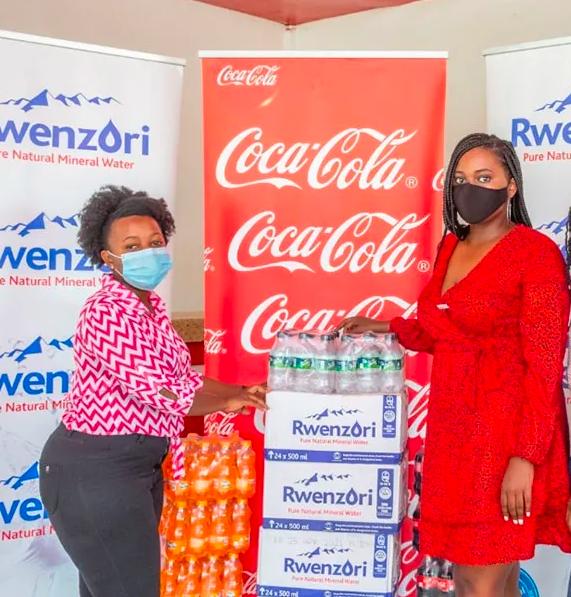
The amalgamation seeks to improve Uganda operations by streamlining the management of the business and improving efficiencies through standardized processes, optimized costs, and increased service levels.
The cashless transaction has seen all CBC employees transferring over to RBC, now renamed Coca-Cola Beverages Uganda.
"This is the final step in a process to create one Coca-Cola Beverages Uganda and consolidate our resources to drive growth and benefit for our employees, customers, consumers, and the wider communities in which we operate, with increased efficiency and opportunities to make Africa a better continent for all," said General Manager, Melkamu Abebe.

MOZAMBIQUE – Niassa Cotton Company (SAN), a subsidiary of the Portuguese Joao Ferreira dos Santos group in Mozambique, has opened a new vegetable oil factory in the city of Cuamba, in the northern province of Niassa.
The facility has a processing capacity of 7,500 tonnes per year of crude vegetable oil, and 3,000 tonnes of refined oil produced from soya beans.
Mozambican President Filipe Nyusi officially opened the state-of-the-art unit. He lauded the project, noting that it will beef up local availability of the highly sought-after vegetable oil, replacing imports and having a direct impact on the country's balance of trade.
Imports of vegetable oil have been a heavy burden on the balance of trade. Annually Mozambique spends about US$400 million on importing cooking oil – which is 30 percent of the import of all goods associated with agriculture.
The opening of the vegetable oil factory follows the inauguration of the country's largest and most modern meat processing unit in the western
city of Tete.
Known as the Canefood Processing Unit, the abattoir can process 200 head of cattle and 500 goats a day.
Fashioned with state-of-the-art equipment, the facility will meet the highest standards of international
certification for slaughter, processing, and conservation.
This will not only contribute to the gradual elimination of the practice of indiscriminately butchering animals without appropriate sanitary conditions, but also open prospects for the export of quality meat to international markets.
CCBA merges Century Bottling Company, Rwenzori Bottling Company to form Coca-Cola Beverages Uganda
Mozambique opens new cooking oil processing facility, modern abattoir
THE FACILITY HAS A PROCESSING CAPACITY OF 7,500 TONNES PER YEAR OF CRUDE VEGETABLE OIL AND 3,000 TONNES OF REFINED OIL PRODUCED FROM SOYA BEANS


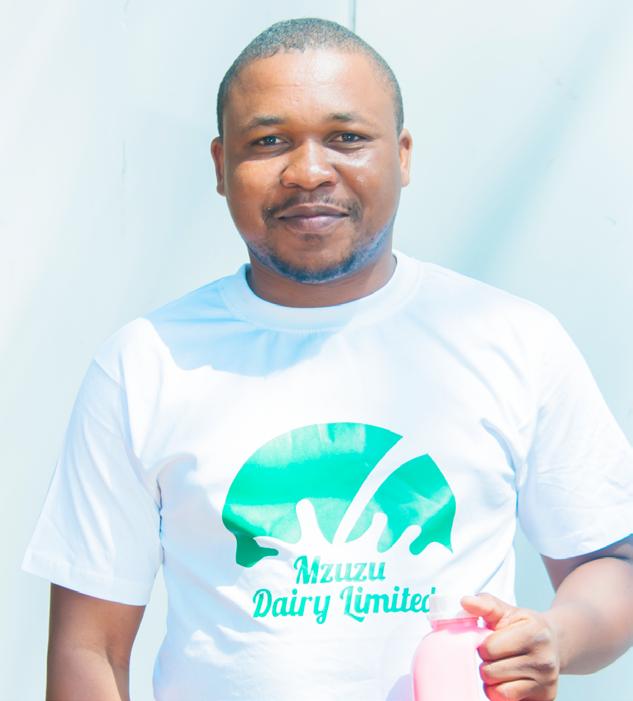

SOUTH AFRICA – Private equity specialist RMB Corvest has teamed up with Masimong Beverages Holdings to acquire Halewood International SA, a well-established South African artisanal drinks manufacturer.
Masimong Beverages Holdings is jointly owned by Masimong Group Holdings (Pty) Limited controlled by Mr. Mike Teke, Sabvest Capital led by Chris Seabrooke, and RMB Family Office Group Solutions.
Established in 1999 Halewood has since become a fixture in South Africa's spirits industry.
The business currently manufactures, imports, and distributes a wide range of alcoholic and nonalcoholic beverages, including mixed drinks "RTDs" like Red Square Vodka and spirits including Belgravia Gin.
CAMEROON – British multinational alcoholic beverage company, Diageo, has once again brokered a sales agreement for another of its African subsidiary with French beverage company Castel Group.

The maker of premium whisky has agreed to sell its brewery in Cameroon, Guinness Cameroon S.A., to industry peer Castel for £389m.
This is the second deal fostered by both parties this year following Diageo’s sale of Meta Abo Brewery to the world-renowned wine producer.
On completion, Castel will take over the production and nationwide distribution of Guinness in Cameroon under a license and royalty agreement.
The deal reflects Diageo's flexible, asset-light beer operating model that seeks to select the most appropriate structure and route to market, based on local conditions, supporting greater efficiency and profitability.

According to Diageo, this agreement provides a robust platform for Guinness' expansion in both production and distribution via
Three depots (Durban, Cape Town, and Ladysmith) support the manufacturing operations with an additional eight outsourced depots across the country, enabling national distribution.
“Halewood has an exceptionally experienced management team. This, coupled with the company’s strong revenue growth, and potential for future growth along with new product lines, makes Halewood a perfect fit regarding our investment criteria,” said RMB Corvest executive, Brendan Wiebols.
The new partners will support Halewood International's commitment to growing its business by extending its product offerings in pursuit of consumer satisfaction.
SWITZERLAND – Switzerlandheadquartered multinational food company, Nestlé is once again the world’s most valuable brand, according to leading brand valuation consultancy, Brand Finance.
Valued at US$20.8 billion, Nestlé is far ahead of its peers, with Yili, the second most valuable brand in the ranking, being two times smaller than the Vevey-Switzerland-based food conglomerate.
To be at the top of the food chain, Nestle continues to pursue its longterm brand strategy by consistently innovating new products and moving forward in its digital transformation.
Castel's five brewing sites and their national distribution network.
As part of the agreement, Guinness marketing in Cameroon will continue
to be managed by the Guinness Global Brand Team, who will set a strategy with dedicated Diageo resources in the market working alongside Castel.
The transaction is expected to complete in the first half of fiscal 2023, subject to regulatory clearances.
The Swiss brand has invested in developing solutions that meet changing consumer preferences by anticipating growing trends, Brand Finance observed.
Meanwhile, the world's largest food company has committed to ending the marketing of infant formula for babies up to six months of age in all countries around the world, effective January 1, 2023.
The unprecedented decision by the world’s largest food manufacturer is particularly relevant in the United States, Canada, and Japan where no regulations currently exist.
Nestlé maintains position as the world’s most valuable food brand, commits to end marketing of infant formula globally

SOUTH AFRICA – Africa's largest retailer Shoprite, has secured R3.5 billion (US$205m) in loans to be channeled towards expanding its key environmental programs as part of its wider sustainability strategy.

The financing includes an R2 billion (US$117m) loan from Standard Bank, the bank's biggest sustainability loan in the retail sector to date, as well as an R800 million (US$46.8m) sustainability-linked loan.
Another R700 million (US$41m) green loan was obtained from Rand Merchant Bank, a first in the retail sector, with an additional sustainabilitylinked loan planned from the same bank.
The funds will go towards investment in renewable energy sources; recycling projects of cardboard and plastic; sustainable
packaging, including reusable, recyclable, and compostable packaging; and driving energy efficiency at its sites, including LED lighting, and a monitoring system for refrigeration to reduce energy consumption and waste.
This will give an added impetus to the substantial investments already made by the retailer aimed to achieve net zero-greenhouse gas emissions by 2050, power 25% of operations with renewable energy by 2027, and ensure 100% of its own-brand packaging is reusable, recyclable, and compostable, and contains on average 30% recycled material content by 2025.
NIGERIA – Dufil Prima Foods Plc, Nigeria's pioneer and largest producer of instant noodles, has merged and absorbed three of its subsidiaries De United Foods Industries Limited (De United), Northern Noodles Limited (NNL), and Pure Flour Mills Limited (PFM).
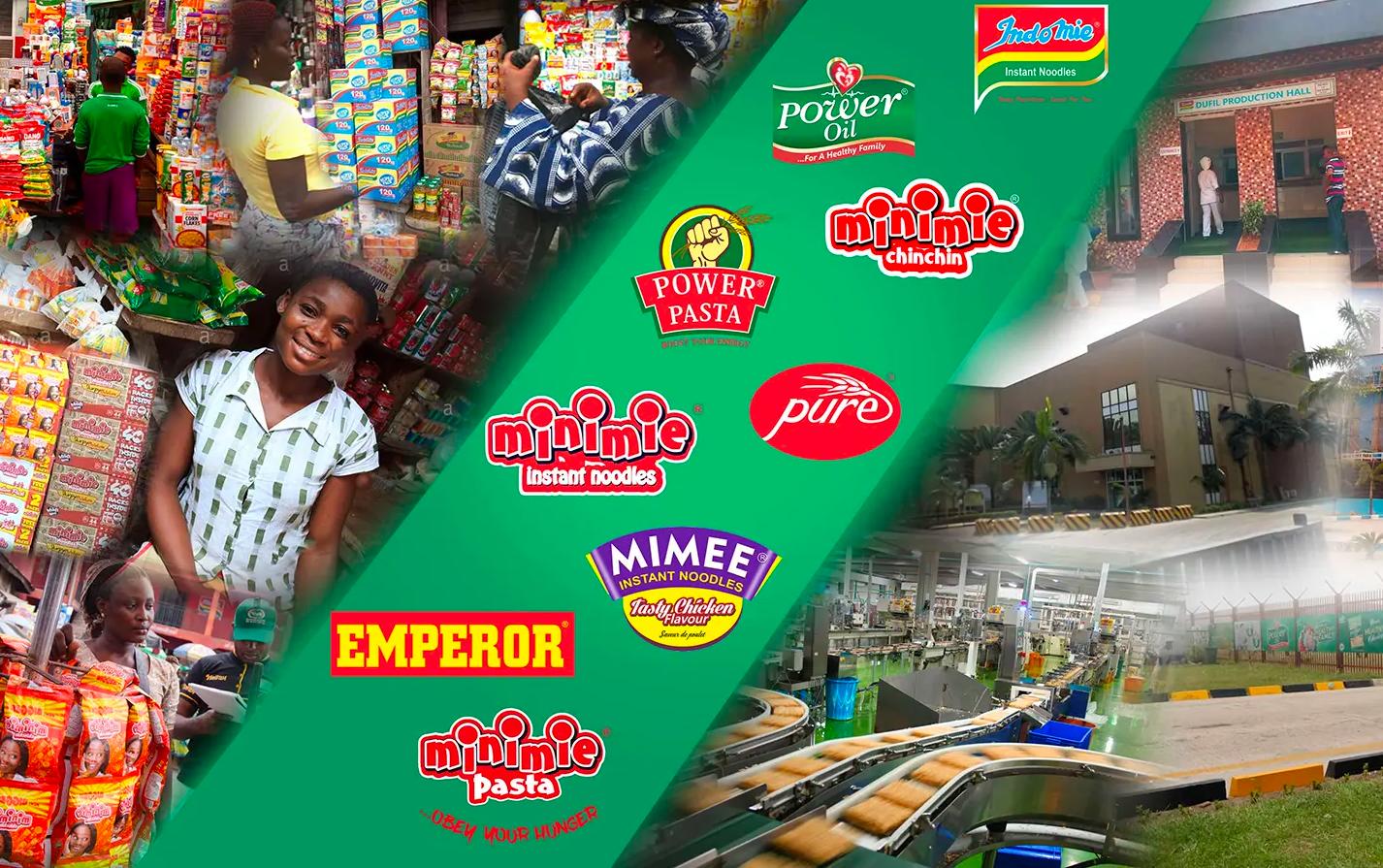
The merger of the four operations, focusing on noodles, pasta, wheat flour, and vegetable cooking oil processing, aims to consolidate the company's efforts to become one of the largest FMCG companies in Nigeria.
Dufil Prima Foods Plc, the surviving and enlarged company, will be a stronger and more dependable manufacturing company that has the critical mass, product line diversity, structure, and market intelligence to compete in the same market as other big manufacturing companies.
Chief Operating Officer Dufil Prima Foods Plc, Adesh Jain said, "This is a huge step towards consolidating our status as Africa's largest pasta and instant noodle manufacturer.
“This is an attractive combination for stakeholders as customers will benefit from our wider and better-
integrated array of products and services; employees will enjoy the advantages and opportunities of being a part of a larger, stronger company; and shareholders will have the opportunity to continue to
participate in the success of a bigger enterprise.”
A scheme of arrangement unanimously approved by the shareholders of each company and sanctioned by the Federal High Court and all appropriate regulatory authorities made the merger possible.
Dufil Prima Foods merges with its 3 subsidiaries to bolster position in Nigerian market
THIS IS A HUGE STEP TOWARDS CONSOLIDATING OUR STATUS AS AFRICA'S LARGEST PASTA AND INSTANT NOODLE MANUFACTURER
His Majesty
Mswati III of the Kingdom of Eswatini
BRAZIL – American multinational food, snack, and beverage corporation, PepsiCo has bolstered its beverage portfolio with the acquisition of a 20% stake in Romanian bottled-water business Aqua Carpatica and another stake in energy drink maker Celsius Holdings.
The Celsius deal involves an 8.5% stake, which Pepsico hopes to leverage to strengthen its strategic distribution arrangement in the US for energy drinks.
In a joint statement, the companies said PepsiCo will make a "net cash investment" worth US$550million for convertible preferred stock in the Florida-based business.
In addition, the deal will enable PepsiCo to have a long-term US distributor of energy drinks brands through a strategic distribution arrangement.
Meanwhile, the 20% stake in the Romanian bottled-water business will give PepsiCo distribution rights for Aqua Carpatica products in Romania and in Poland, where the brand is not present.

In addition, PepsiCo plans to take the brand which it describes as “premium Romanian spring water” into other new global markets, including the United States.
ZAMBIA – Zambeef Products PLC, one of the region's leading agribusiness companies, has received US$35 million financing from IFC to back its recently unveiled US$100 million expansion plan.
Under the three-year plan, Zambeef highlighted that it seeks to expand its crop production while adding associated value and capacity to the company's stock feed, milling, meat processing, and retailing operations. More capacity will enable it to source more key inputs, such as wheat, dairy, and animal feed ingredients, from local suppliers, the company said.
Central to the investment strategy will be a doubling of wheat and soybean capacity at the company's Mpongwe farms, with the area under cultivation growing from the current 3,343 hectares under irrigation and 7,621 hectares of rain-fed cropping.
US – World’s second-largest processor and marketer of meat products, Tyson Foods, has committed US$200 million to expand and upgrade operations in its beef plant in Amarillo, Texas.

The expansion project that will begin this fall involves the construction of an additional 143,000-square-foot to the existing beef complex that will expand and enhance the facility’s existing operations floor.
The expanded complex is also to house the upgraded team members' well-being areas, including locker rooms, cafeteria, and office space.
In addition, it will modernize the facility and prioritize team member safety, ergonomics, and food safety, and incorporate enhanced automation and new technologies, Tyson said.
The new space also supports several of the company’s sustainability efforts through energy and water conservation improvements. Specially designed water utility equipment, pumps, and piping will automate and allow for a reduction in water usage.
Earlier, Tyson Foods reported an increase in Q3 net revenue from US$12.48 billion in fiscal 2021 to US$13.5 billion in fiscal 2022 but warned of supply constraints.
Zambeef will also use the funds to upgrade its feed mill, develop more animal housing, purchase new farm equipment and develop 1,000 hectares of irrigation land, among others.
The project will improve the company's value chain, create almost 1,400 new jobs, expand the tax revenue, and support small-scale farmers and small and medium-sized businesses. It will also increase access to high-quality and affordable protein foods.
Further to that, IFC will provide advisory services to help Zambeef set up a comprehensive carbon assessment planning system, which will accelerate long-term climate-smart initiatives to combat climate change.
Tyson Foods invests US$200m in expanding and upgrading Amarillo beef plant
Zambeef receives US$35m support from IFC to spearhead its US$100m expansion plan
THE PROJECT WILL IMPROVE THE COMPANY'S VALUE CHAIN AND CREATE ALMOST 1,400 NEW JOBS
GERMANY – Packaging and bottling machine manufacturer Krones has unveiled its fourth generation Contiform stretch blow molder which is reportedly more environment friendly and highly efficient.
In developing the new machine,
Krones’ R&D team focused on reducing energy consumption in preform heating and, of course, in lowering compressed air consumption in the blowing process.
They shortened the distance between the heaters, made the heating space even more compact overall, and redesigned the heaters with parabolic reflectors.
“As a result, they’ve cut energy consumption by 11 percent compared to the previous generation,” Krones revealed.
The new Contiform is also now even more user-friendly: It features a large-screen interface with the latest touch technology and improved visualization software.
Tapping into the infinite capabilities of blockchain, the German manufacturer has also unveiled a the world’s first wet-end block achieving an output of 100,000 0.5-liter water bottles per hour.

According to Krones, the innovation represents a quantum leap in blockchain technology and responds to the need for appropriate machine speeds to meet the rising demand for packaged water.
With the ErgoBloc L, the company also proves that a single larger line offers better performance in terms of both energy and media consumption per packaged unit than multiple medium-output lines.
Krones
Setting base in Kenya is set to stamp its presence in the African market, which it has been serving for many years through its collaboration with SBA, the official partner and representative of a couple of multinational companies in Africa.
KENYA – Sidel, a leading provider of equipment, services, and complete solutions for packaging beverage, food, home, and personal care products, has opened a new office in Kenya, expanding its presence in the East African region.
The move heightens its support for customers in East Africa, a key market for Sidel and one of the continent's fastest-growing regions.

The new office will enable it to drive development in the region by working more closely with customers to provide them with dedicated engineering capability and on-theground customer service.
It is located in the heart of the country’s capital Nairobi, alongside its parent company Tetra Laval as well as the African head offices of other international companies.
Under the new plan, the packaging solution provider will continue to work closely with SBA in East Africa, tagging it as the exclusive distributor of its spare parts.
Moreover, SBA will increase its commercial and service-based resources and focus on Ethiopia, Central, and West Africa, using existing SBA offices in Côte d'Ivoire, Nigeria, Angola, Congo, DRC, and Ethiopia.
ASNEW INNOVATION CENTER
Krones unveils next gen contiform, taps into block chain to achieve 100,000 bottle/hour production lineMARKET EXPANSION
of KIC Krones officially opened the facility that will serve its customers in Ethiopia and neighboring markets with locally manufactured cold glue for their labeling needs.
“We are very happy to celebrate the inauguration of our glue manufacturing facility in Addis Ababa, Ethiopia!
AFRICA – Krones, a global manufacturer of filling and packaging technology, has inaugurated a new glue manufacturing facility in Addis Ababa, Ethiopia.

H.E Stephan Auer the Ambassador of the Federal Republic of Germany to Ethiopia, Gary Zeller Managing Director of Krones East Africa, and Stephan Maschke Managing Director
"Krones is committed to the Ethiopian Market and [we] will continue to strengthen our efforts to serve our customers," highlighted the company on a LinkedIn post.
Headquartered in Neutraubling, Germany, Krones designs and implements complete lines for beverages and food, which cover each production process step–starting from product and container production, filling, and packaging up to material flow and container recycling.
JORDAN – French flavor and fragrance giant MANE has opened a new flavor facility in Amman, Jordan in an effort to better serve its customers in the Middle East.
The Amman facility, located on the 4th floor of the Middle East Insurance Building on 3rd Circle, Zahran Street, is MANE’s second site in the region and will greatly support the existing MANE Dubai offices for fragrances.

EGYPT – Speciality chemicals and food ingredients supplier Azelis, has opened a new food laboratory in Cairo, Egypt, aimed at providing innovative and technical support to the customers in the Middle East and Africa region.
Other than facilitating efficient service delivery, the state-of-the-art laboratory will offer regular seminars and training sessions for its customers.
While fully equipped to service various food segments, the new laboratory will primarily focus on dairy and beverages, servicing the region with new value-adding formulations.
“We are very happy to have this new application laboratory in Egypt, focusing on dairy and beverages.
“The lab is equipped with modern technology to best support our customers. We will utilize our lateral value chain and our skilled
technical staff to bring new, innovative formulations to the market,” said Mattar Mattar, Country Manager, Azelis Egypt.
“The new facility reflects not only the Mane family’s strong belief in the potential growth of the region, but also its strong commitment to serving customers in the food and beverage industry at the highest levels and with local expertise,” Mane said,
The new facility complements the many other Azelis Food & Nutrition laboratories across the EMEA region and worldwide, an addition to its innovation capabilities and supporting the constant drive for discovery and sustainability.
MANE Amman is fully operational and has sales, technical, and evaluation departments and two laboratories to cover a wide range of beverage, dairy, confectionary, snacks and culinary applications.
It will mainly focus on providing customers with speedy, high-quality services and applications that suit the different taste profiles across the Middle East region.
Azelis expands its global food laboratory network with launch of new facility in Egypt
MANE bolsters Middle East customer support capabilities with new flavor facility in AmmanNEW INNOVATION CENTER
THE NEW FACILITY REFLECTS MANE FAMILY'S STRONG COMMITMENT TO SERVING CUSTOMERS IN THE FOOD AND BEVERAGE INDUSTRYMane
ZIMBABWE – Dairibord Holdings Limited, Zimbabwe's leading manufacturer and marketer of food, dairy, and beverage products, has appointed Mercy Rufaro Ndoro as the Group Chief Executive Officer, effective 1 October 2022.

Mercy Rufaro has held the positions of Financial Accountant, Finance Executive, and Company Secretary of Dairibord Holdings Limited. She was appointed Finance Director and an Executive Director of the Company in 2009.

She has a deep understanding of the business from experience in management positions spanning over 25 years in Dairibord and is firmly positioned to take the business through this transition period and beyond.
KENYA – Kenya Breweries Limited, subsidiary of East Africa Breweries Limited, has appointed Rosemary Mwaniki to the role of the company’s Operations Director.
Rosemary officially took office on 1st September, 2022, and has been tasked to oversee operations across the Tusker, UDV, Kisumu & EAML site as well as Engineering & Governance functions.
She has transitioned into this new role from Packaging Manager – KBL Nairobi Tusker Site, a docket she had held since July 2020.
Prior to that, Rosemary served under different capacities within the KBL Supply Chain team in Plan, Source and Move.
ZIMBABWE – Nestlé has appointed Luke Gomes as the new Cluster Head for the Greater Zambezi region, one of three clusters within Nestlé East and Southern Africa Region (ESAR).


The cluster covers five countries, Zimbabwe, Zambia, Malawi, Mozambique, Comores, and Madagascar. The new boss will be headquartered in Harare, Zimbabwe where he will also be assuming the Managing Director role for Nestlé Zimbabwe.
Gomes took the reins on June 1st, 2022, succeeding Asim Rifat, who has taken on the role of Business Executive Officer, Nestlé Nutrition Middle East, and North Africa.
Mercy will take over the helm of the company to replace the company's long-serving head Anthony Mandiwanza, who will be retiring from the organization with effect from 30 September 2022 after a distinguished tenure spanning more than two decades.
During her stint with the drinks maker, Rosemary has attained various notable achievements including being the Global Diageo Supply Chain Hero of the Year in 2019, Global Procurement Leader of the Year in 2018 and KBL Most Valuable Player in 2018.
She has been instrumental in embarking on a robust transformation agenda in packaging to improve overall culture and performance through focused actions around people, planning, asset care and capability.
Gomes will also become a board member of the Swiss Zimbabwe Business Chamber where he will play a role in transforming the Zimbabwean business community through fostering deep political and economic relations between Switzerland and Zimbabwe.
Kenya Breweries Limited names Rosemary Mwaniki as new Operations Director

KENYA – Kenya Association of Manufacturers (KAM) has named Rajan Shah, CEO of Capwell Industries as its new National Chairman to lead the organization for a two-year term.
Mr. Shah, who has served as Vice Chair since June 2020, takes over from Mucai Kunyiha whose term has come to an end.
To succeed Mr. Shah in his previous role at the association is Ms. Jane Karuku, the East African Breweries Limited Group Managing Director and CEO.
Ms. Karuku has also served on the KAM Board in various capacities, including that of the Chair of the Human Resource Committee.
NIGERIA – Olam has named Ashish Pande as the new Country Head of its food, feed, and fiber operating unit, Olam Agri in Nigeria, effective 23rd August 2022.


Before his new appointment, Ashish was the Managing Director & Senior Vice President of Crown Flour Mills, Olam's subsidiary in the West African country.
Having worked with the group for over 5 years, holding different positions, Ashish was instrumental in establishing Olam Agri’s animal feed business, successfully integrating the acquired Dangote Flour Mills, setting up Crown Flour Mills’ extensive fleet operations, and overall leading a successful wheat milling business in the West African country.
Ashish an Engineer with a master's degree in Business Administration, has more than 22 years of experience in the FMCG market having worked with several multinational companies across Africa, Asia, and Europe.
Meanwhile, the association has appointed Mr. Anthony Mwangi as the new Chief Executive Officer, effective 15th September 2022.

Mr. Mwangi has over 20 years of work experience and brings on board a wealth of expertise in public policy, government relations, stakeholder engagement, communications, and business development, cutting across the Transportation, ICT, Aviation, and Oil and Gas industries.
EASTERN AFRICA – Nestlé has appointed Luke Gomes as the new Cluster Head
(ESAR).
The cluster covers five countries, Zimbabwe, Zambia, Malawi, Mozambique, Comores, and Madagascar. The new boss will be headquartered in Harare, Zimbabwe where he will also be assuming the Managing Director role for Nestlé Zimbabwe.
Gomes took the reins on June 1st, 2022, succeeding Asim Rifat, who has taken on the role of Business Executive Officer, Nestlé Nutrition Middle East, and North Africa.
Gomes will also become a board member of the Swiss Zimbabwe Business Chamber where he will play a role in transforming the Zimbabwean business community through fostering deep political and economic relations between Switzerland and Zimbabwe.

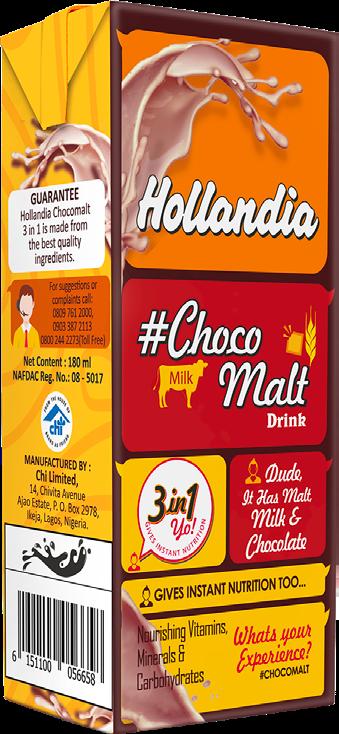





Voltic (GH) Limited, a subsidiary of Coca-Cola Beverages Africa (CCBA), has launched Hollandia Choco Malt Drink in the country. The flavoured malt drink is a functional 3-in-1 beverage that combines all the goodness of milk, rich chocolate, and energy-giving malt in a ready-to-drink format for consumers. Packed with vitamins and minerals, the drinks come in handy pack sizes of 200ml and 300ml.



ww.volticghana.com
Kevian Limited has launched the apple cider ginger drink, a prebiotic drink that reportedly helps lower cholesterol, increase metabolism and maintain healthy blood sugar levels. The drink is comprised of a cold-pressed Apple Juice with a hint of ginger that can be enjoyed alone but also perfect for making cocktails for mocktails. It comes in stylish 380ml PET bottles and is available inleading stores in Kenya.
www.keviankenya.com
Nestlé South Africa has introduced NESTLÉ EVERYDAY, an affordable fortified medium fat dairy powder drink. NESTLÉ EVERYDAY is enhanced with locally sourced ingredients containing Calcium, Iron, Vitamins, and Zinc, to help build and strengthen immunity for the whole family. The nutritious powder drink is available in 250g packs. Each pack yields 1.75 litres of dairy drink. The product can be purchased at most informal and formal traders and retailers.
www.nestle-esar.com
Eastern Africa’s largest dairy processing company, Brookside Dairy Limited, has introduced a new range of fortified whole milk dubbed Brookside Plus+. Available in 1 liter carton packaging, the new UHT offering comes packed with fibre and vitamin A & D, aimed to give consumers nutrients that may otherwise be lacking in their diets.

www.brookside.co.ke


Richester Foods, a South Africa based company, has launched the first locally manufactured chewing gum dubbed Mintex. Individually wrapped for added hygiene and convenience, Mintex two-piece chewing gum sachets comes in three flavour variants: the traditional Peppermint, the cool Spearmint, and the Extra Strong for an intense burst of cool air. The gum is also vegan, gelatine-free and halaal, appealing to a broad consumer base.


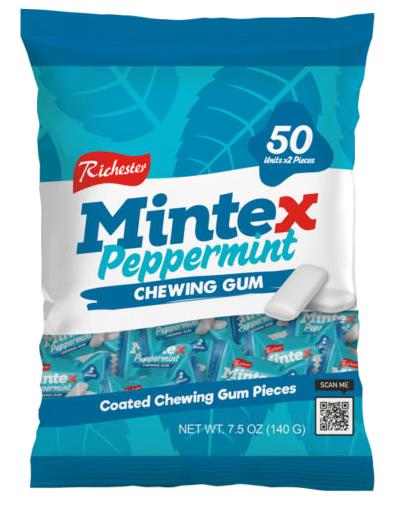
www.richester.co.za

Dairy Group South Africa has introduced a new dairy brand dubbed, Creamline comprising of UHT milk, butter and dairy liquid blends. The UHT milk and dairy liquid blends are available in 1L composite carton boxes while the butter comes in a 500g pack. The new Creamline has joined the existing private label UHT milk produced by Dairy Group for both Usave and Checkers, brands under Shoprite Group.


www.dairygroup.co.za
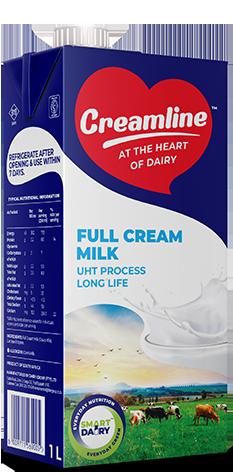


Despite starting just before the Covid-19 pandemic, Maisha Beverages Company has produced and sold over 25 million bottles of soda to date. Theirs is a story of a company out to give African consumers wonderfully refreshing, incredibly tasty, and astonishingly affordable beverage alternatives to what they have been getting for the last 60 years.
By Paul OngetoAfrica’s soft beverage market is one of the fastest growing globally. Standard Bank, in its latest report, estimates the market to be worth US$14.703 billion by 2023. According to the report, the East African market is one of the most vibrant regional soft drinks markets with Kenya, its largest market, enjoying double-digit growth of 11% CAGR growth between 2008 and 2018. Despite robust growth in sales, the choice for consumers has been historically low, with American multinational beverage company Coca-Cola controlling up to 70% of the Kenyan carbonated soft drinks markets as of 2019 when the report was published. That same year, something interesting was brimming in the Kenyan beverage market: Maisha Beverages, a young but audacious company, was preparing to dive into the market with its flagship brand, Hola.

“We are here to provide better quality,

more affordable alternatives to the regional markets,” opens Brij Raja, the Chief Executive Officer of Maisha Beverages Company. "The increasingly discerning Kenyan consumer wants and needs unique, innovative flavors. The consumers are bored with the traditional flavors they have been getting for the last 60 years.”
Launching with a range of 5 drinks: 4 carbonated soft drinks and 1 energy drink, Maisha Beverages spiced up the market in September 2019. Hola Energy drink, a tasty and extraordinarily revitalizing drink, was the leader in Maisha Beverage's drinks portfolio. Brij confesses that since its launch, the drink has traditionally been the engine of the company's sales. “We call it our Liquid Gold,” he reveals.
Other brands in the original portfolio include Hola Mojito, a lemony-limey, slightly
minted soda that is sweet and slightly tangy; Hola Cola, a full-bodied cola soda with a lingering sweet taste of luscious caramel; and Hola Rose, a vivacious and vibrant, delicately sweet pink colored soda. Bright and Bold, the Hola Orange wrapped up the list of the 5 original brands that Maisha Beverages came to market with.
With the five different varieties, Hola was well on its way to giving Kenyans what they had long desired: "new, exciting and innovative flavors.” Brij and his team were, however, cognizant of the reality of the Kenyan market. "There are tens of millions who still have limited spending power," he confesses. “This market is not as mature as some more developed markets and still needs access to affordable drinks. We live and operate in a price sensitive market, and we must always keep this at the forefront of our minds.”
To reach all Kenyans, majority of whom live on less than US$2 a day, Maisha Beverages makes their signature Hola beverage brands available in 301ML PET bottles which are affordably priced at just KES36 shillings (US$0.30). "At Maisha Beverages, we believe in giving consumers a world-class product at an affordable price," he affirms. "We want people to enjoy superb quality drinks but to be able to also save their shilling."

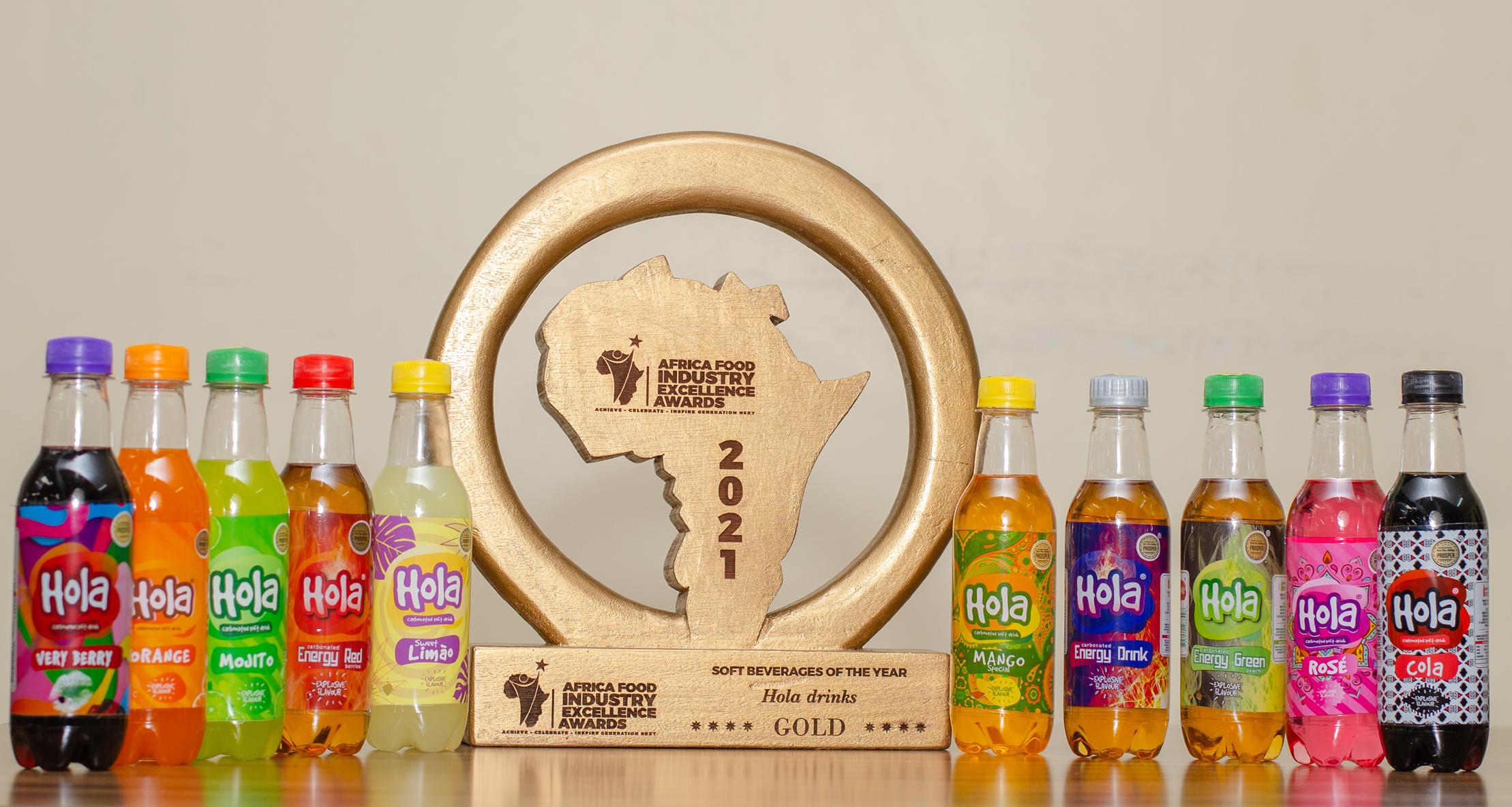
We live through an age of disruption in the global consumer sector; the likes of which we have never witnessed before. To stay ahead, companies need to constantly innovate. Maisha Beverages being an innovator from the start is not taking chances. Brij reveals to us that his company collaborates closely with hand-picked European flavor houses to bring flavors suited for the Kenyan market. “These flavor houses look at all the global trends going on across the world,” he says. “We then sit down with them, brainstorm, and try to bring flavors that will work for this region's palate.”
So far, the company has been able to expand its range of energy drinks and soft drinks from 5 to 10: seven carbonated soft drinks and 3 energy drinks. The carbonated soft drink additions include Hola Very Berry, Hola Sweet Limao, and Hola Mango Special. The energy drinks that have been added to the range since Hola Energy brand took the market by storm in 2019 include Hola Energy Green, a peach and lemon grass-flavored drink with spicy but subtle flavor, and Hola Energy Red which is a red berry flavored drink with a touch of “tropical swagger”. Brij is proud to reveal to us that his company’s flavored energy drinks were one of the first in
AT MAISHA BEVERAGES, WE BELIEVE IN GIVING CONSUMERS A WORLD-CLASS PRODUCT AT AN AFFORDABLE PRICE. WE WANT PEOPLE TO ENJOY SUPERB QUALITY DRINKS BUT ALSO BE ABLE TO SAVE THEIR SHILLING





For the past 10 years, the Food Business Africa team has been closely following up on the progress the dairy sector has been making across the continent. We have covered everything from new product developments to the adoption of the latest technologies in the dairy sector. We have also highlighted how companies have embraced sustainable growth and made investments that have positively impacted different economies across the region.
Nigeria-based FrieslandCampina WAMCO has emerged as the African Dairy Company of the Year 2022 for its focus on high-quality dairy products, industry leadership, recent investments, adoption of latest technologies, and sustainable business practices that leave the communities and environment it operates in a better place.
FrieslandCampina WAMCO Nigeria PLC, an affiliate of Royal FrieslandCampina in The Netherlands, has been a key player in the Nigerian dairy sector since 1954 through its flagship brand Peak Milk. Commencing operation as

a net importer of dairy products into the country, the company was incorporated in April 1973 and commenced local production in 1975.
Since setting base in the West African country, FrieslandCampina WAMCO has expanded its offering from evaporated milk to the production of milk powders, infant milk, UHT milk, creamers, and flavored milk which are marketed in Nigeria in several brands including Peak, Three Crowns, Coast, NUNU and Olympic. These brands have not only become household names but are also credited for being pioneers in the local manufacturing of several dairy products in the country, including evaporated milk and creamers. They are also given credit for the introduction of fortified-based products, among other dairy firsts in Nigeria.

Despite being a subsidiary of a multinational dairy cooperative, FrieslandCampina WAMCO has redefined its operations to achieve localization prowess by addressing three national challenges i.e. nutrition security, sustainability, and good living for farmers. At the heart of the company’s operations is the passion to make quality dairy nutrition affordable and accessible. This is strongly rooted in the company’s mission statement of nourishing Nigerians with quality dairy nutrition and made possible by its innovativeness and extensive distribution network across Nigeria.
A stroll through the bustling markets of Lagos to Ilorin will validate this claim. It feels like walking through
a FrieslandCampina corporate display case with street vendors towering cans of peak milk, as shop attendants strategically hang sachets of Three Crowns milk powders at the shop fronts. In leading retail outlets, the company ensures all its brands are well laid-out along the dairy aisles, making it impossible for a customer not to catch an eye of them.
Following the COVID-19 pandemic outbreak, the dairy processor launched an e-commerce platform to cater to digitally savvy consumers and foster convenience for shoppers. Through e-commerce marketing across digital platforms, over 4 million consumers were reached in 2020 from zero in 2019.
It’s evident from FrieslandCampina’s wide placement of its products, that the company has perfected its route to
FRIESLANDCAMPINA WAMCO NIGERIA PLC HAS BEEN A KEY PLAYER IN THE NIGERIAN DAIRY SECTOR SINCE 1954 THROUGH ITS FLAGSHIP BRAND, PEAK MILK
THE PEAK DAIRY BRAND HAS BEEN PART OF FRIESLANDCAMPINA WAMCO'S PRODUCT PORTFOLIO SINCE ITS LAUNCH IN 1954
market. A review of its 2021 financial results indicates that the dairy processor earned a total revenue of N268.4 billion (US$636m). The performance, which was 34.5% higher than N199.5 billion (US$472m) attained in the previous year, was attributed to strong volume growth, a testimony to the high demand for its products. FrieslandCampina WAMCO ensures this demand is always met by availing products that align with consumers’ needs and demands. The company further builds consumer loyalty through its engaging customer-centric campaigns undertaken by the respective brands.
The company’s flagship brand, Peak, has over the years expanded to add more product lines from the evaporated and powdered milk categories, to the introduction of readyto-drink Peak UHT milk and flavored 3-in-1 milk powders i.e., Peak Chocolate and Peak Instant Tea Mix.

In 2013, the company launched the first and only maternal milk in Nigeria for pregnant and breastfeeding mums under the brand name Frisomum Gold. Coming in rice and wheat variants, the milk optimizes the baby's development through nutrition before, during, and after pregnancy. Frisomum's launch was in alignment with a key millennium goal aimed at improving maternal health and reducing infant mortality. The launch of maternal milk was followed by the introduction of Peak Baby, a new Infant Formula for babies aged 0 -12 months, and Peak 123 Growing Up Milk for children ages between 1 and 3 years
old. FrieslandCampina WAMCO stamped its dominance in the Infant and Toddler category (IFT) with the launch of Peak 456 in 2016 to provide specialized nutrition for kids aged 4 to 6 years. In a bid to showcase the importance of healthy eating among toddlers, Peak 456 since its launch has been undertaking yearly consumer education campaigns in schools by equipping teachers with the required knowledge and teaching aids to educate children on the importance of good nutrition.
The Peak brand has further moved into other valueadded products with the addition of a ready-to-drink line debuting Peak Drink Yoghurt in 2019, coming in strawberry, plain sweetened, and orange flavors. In the same year, FrieslandCampina WAMCO through its accelerator program Milkubator launched Milky Pap, a prepacked all-in-one powdered pap product that contains milk for protein, corn for energy, and also enriched with vitamins and minerals under a new brand known as Fristi.
Fuelling its second engine is the Three Crowns brand, which is positioned as Nigeria’s leading low cholesterol and heart-friendly milk. The brand was launched into the Nigerian market with evaporated milk in 1988 and extended into the milk powder category in 2015. Two years later, it launched Nigeria’s first locally produced Creamer. In pursuit to provide valuable experience and giving consumers strong reasons to buy the brand, Three Crowns has set itself apart to show care for mothers and acknowledge the important role they play in the family. To this end, the brand undertakes a yearly fitness challenge to encourage mums to cultivate a healthy lifestyle.
Further expanding its portfolio, the company acquired Nutricima’s dairy business from PZ Cussons Nigeria in 2020. The investment encompassed a production facility in Ikorodu, Lagos State, and its brands, Olympic, Coast, and Nunu; a range of powdered, evaporated and ready-todrink milk products. These brands have a good presence across the Nigerian dairy market and are set to strengthen FrieslandCampina WAMCO’s leading position in the sector.
It is important to note that all its production processes are regulated by the Commercial Dairy Ranchers Association of Nigeria (CODARAN) and the National Agency for Food Drug
THE NEW YOGURT PLANT STARTED BY PROCESSING 1.8M KGS OF MILK AND CAN ANNUALLY PRODUCE OVER 18 MILLION POUCHES OF DRINKING YOGURT.


and Administration Control (NAFDAC). Other than being locally certified, its operations align with internationally recognized standards such as FSSC 22000 Certification, ISO 9001:2008, and HACCP.
The growth of the brands has been majorly fuelled by huge capital injections into its operations. Some of the company’s recent investments include major renovations and improvements undertaken in the Powdered and Evaporated milk factories in 2016. In line with its policy of constantly exploring ways of optimizing operational efficiency, FrieslandCampina WAMCO in the same year commissioned a new ultra-modern and well-equipped finished goods warehouse with a capacity of over 14,000 pallet positions. This enabled the company to consolidate warehousing operations from five different locations in Lagos into a single new warehouse, improving efficiency in warehousing, distribution, and logistics.

Fast-forward to 2019, the company commenced operations at the state-of-the-art yogurt processing factory that enabled it to introduce the new Peak Yoghurt Drink range. Strengthening its yogurt production capacity, the company unveiled a mobile yogurt plant concept in 2021 to enable the production of yogurt drinks with a long shelf life from locally sourced fresh milk. The new yogurt plant
started by processing 1.8 million kilograms of milk and can annually produce over 18 million pouches of drinking yogurt.

Still, in 2021, FrieslandCampina Wamco accelerated growth with an additional processing line in the can factory, installed an end-of-line robotics sorting solution at the powder factory, and added a new lid supply line in the evaporated milk factory. In addition to that, a new homogenizer was installed at the recently acquired Nutricima operations, doubling its processing capacity.
To ensure constant production of its highly sort-after products, FrieslandCampina Wamco has channeled tonnes of resources towards boosting milk production in the country and improving the quality of the milk availed by dairy farmers. Being a trendsetter in Nigeria’s dairy industry, the company pioneered its first backward integration program in 1984 through the establishment of a dairy farm located in Vom, Plateau State. Since then, FrieslandCampina WAMCO has integrated all its operations and progressed into a more sustainable dairy value chain model named the Dairy Development Programme (DDP). The program was launched in 2010 with an investment of N21 billion (about US$50m).
DDP currently operates in various communities across the Southwest and Northern parts of Nigeria, covering the states of Oyo, Osun, Ogun, Kwara, and Niger. The DDP focuses on working with pastoralists, smallholder dairy farmers, and commercial farms, with support from various partners such as IFDC-2SCALE, Bles Dairies, Wageningen University, URUS, Barenbrug, Agrifirm, Federal Ministry of Agriculture and Rural Development (FMARD) and the Central Bank of Nigeria under different initiatives such
as the recently completed FDOV program and Value4Dairy, among others.
Through the Dairy Development Programme, local farmers are supported in the production of milk (yield per cow improvement), improving milk quality and hygiene, feeding, breeding, and farm management. The locally sourced milk from the farmers is collected through the company's Milk Collection Centers (MCC) which are 28 in total with a capacity of 85,000 liters. The milk is then transported to the WAMCO processing facility in Lagos, where it is processed into yogurt and other dairy products, in line with FrieslandCampina WAMCO's grassto-glass philosophy which seeks to ensure quality from the grass the cows feed on to the glass of milk taken by the consumers.
Some of the notable achievements attained by the DDP include improving the livelihood of over 120 communities and over 11,000 smallholder dairy farmers and pastoralists organized in 23 cooperatives. With improved dairy farming practices, the company recorded an increase in fresh milk collection from farmers, hitting an alltime high record of 40,000 liters of milk per day. In addition, it achieved
premium fresh milk quality levels with TPCs below 500,000 cfu/ml; increasing milk fat from 3.8% to 4% and total solids from 11% to 12%.



In 2019, DPP got a boost when the government assigned FrieslandCampina WAMCO 10,000 hectares at the Bobi Grazing Reserve in Niger State under a 40-year lease contract agreement in line with the CBN policy to discourage the importation of dairy products and other milk derivatives, of which the country spends about US$1.5 billion annually.

In its bid to widen the scope of the DDP and make it more inclusive, FrieslandCampina WAMCO, in partnership with key stakeholders, launched Nigeria’s first expertise dairy development hub, the Centre for Nigeria Dutch Dairy Development (CNDDD) in 2020. The Centre focuses on improving dairy productivity and sustainability through the entire dairy value chain in the country, supported by Dutch partners, who have experience and practice developed over a century. The CNDDD will strengthen cooperation among relevant stakeholders, including the Nigerian Government, dairy farmers,
academics, students, and key industry players.
Capacity building is engraved in the dairy cooperative’s DNA. To sharpen the skills of its over 700 employees, the company established a WAMCO Academy in 2019. The academy is a one-stop system and structure that provides generative and adaptive learning, leveraging technology. It is an L&D system for building competent people with the right skills, knowledge, and behavior required to deliver outstanding business results in a complex environment, accelerating its transformation culture from status
quo to high-impact learning and performing organization. Further navigating the wheels of doing business ethically, FrieslandCampina Wamco has availed a safe and conducive environment for its employees, substantiated by its 9 years of work without lost time accident (LTA) track record as of December 2021. The company also has a unique platform, dubbed Speak Up, that encourages employees and related third parties to speak up against malpractices and compromises on the fundamental Code of Business Conduct, Ethics, and Culture of FrieslandCampina, otherwise known as Compass. Through these and many other employee-oriented initiatives, FrieslandCampina Wamco has fostered an atmosphere that ignites team spirit, commitment, and loyalty to the business.
At the surface level, FrieslandCampina WAMCO seems to be ticking all the right boxes by having a wide array of innovative products, modern facilities with groundbreaking technologies, and even championing the country's dairy development agenda.
However, as a purpose-driven company, the owner of Peak Milk has strived to align its contribution to a sustainable world in line with the United Nations SDGs through its parent company’s Nourishing a better planet strategy. To this end, the company has prioritized offering better nutrition through its products by ensuring affordability to consumers and good returns to its member dairy farmers. To further improve milk output and quality, the company plans to train 75,000 local farmers through its Dairy Development activities by 2025. Alongside this, it seeks to source 100% of its agricultural raw materials sustainably and trace 95% of the materials by 2025.
In addition, the dairy processor aims to reduce over a third of its greenhouse gas emissions by 2030 compared to 2015 and become climate neutral by 2050 as it attains net positive biodiversity within the cooperative. One of the ways FrieslandCampina seeks to reduce harm to the environment is by utilizing better packaging. It targets that 100% of its packaging will be recyclable or reusable by 2025 and more than 99% of waste material will be reusable.
Going by its strategy, in 2019, FrieslandCampina WAMCO designed two recycling machines using scrap materials. This has helped the company achieve a 54% reduction of trademark wastes to landfills and a decrease in the cost of destruction by 91% in that year against a 2018 baseline. Through the Dairy Development Program, the company has promoted eco-efficient practices to safeguard the eco-system through the construction of 122 solar-powered boreholes as of December 2021, providing farmers with portable water. The dairy has also introduced hydroponics, a method of growing high-nutrient grass in harsh environments.
FrieslandCampina WAMCO has been lauded as a highly stakeholder-oriented business as its emphasis is not only on the products it sells but also on how the entire business contributes to the well-being of the system in which it operates. They have done this by deploying interventions for the advancement of society beyond commercial targets. Some of the notable initiatives undertaken by the company include ensuring the availability of quality dairy nutrition, especially among growing children through participation in school feeding programs; creating a link between industry and academia through championing knowledge transfer and fostering mentorship programs; and supporting charitable organizations and needy communities across the country through donations and kind.
Noteworthy, in 2019 following the outbreak of the COVID-19 pandemic, Frieslandcampina WAMCO was at the forefront in aiding the country to alleviate the negative impact of the pandemic. The company donated N500m (US$1.1m) towards Nigeria’s Covid-19 Intervention Fund through the Private Sector Coalition Against Covid-19 (CACOVID). This is in addition to the N100m (US$273,000) worth of products donated for distribution to 100,000 vulnerable families.
To acknowledge the company’s leadership position in the dairy sector and its key contribution to the economy, FrieslandCampina WAMCO has garnered tonnes of accolades and recognition both locally and internationally. In the previous year, the dairy company hauled over five awards from the Brand of the Decade and the Agribusiness Company of the year to the Best Tax Compliant Company in Nigeria. These add to the tonnes of awards received over the years since its inception, a testament to the company's leadership position in the region FBA

TO SHARPEN THE SKILLS OF ITS 7,000 EMPLOYEES, THE COMPANY ESTABLISHED A WAMCO ACADEMY IN 2018
Low-alcohol beer was for the first time brewed on a large scale during the American Temperance movement when a temporary Wartime Prohibition Act introduced in 1918, followed by the National Prohibition Act in 1920, was introduced to curb the consumption of alcoholic drinks. During that period, which lasted until 1933, it was illegal to trade any
alcohol that had an ABV level of over 0.5%, leaving brewers with little choice but to reinvent their beers into what at the time was a lackluster and less flavorful version of alcoholic beers.
Although the period was short-lived, the No and low alcohol (NoLo) drinks market remained resilient. What was previously dominated by low-strength beers is today

far more diverse, comprising a wide range of drinks from low and alcohol-free wines to zero-alcohol beers and Hard Seltzers. The innovation that has gone into this sector has jettisoned a once obscure and failing market into the mainstream, driving demand and threatening sales of all alcoholic drinks from beers and wines to vodkas and gins.

New research from IWSR shows that the once rare sector in the global beverage alcohol market grew by more than 6% in volume in 10 key global markets in 2021. The category now commands a 3.5% volume share of the industry, representing a 75% increase in global no- and low-alcohol consumption. The 10 key countries in which the category grew from US$7.8 billion in 2018 to slightly under US$10 billion in 2021 include Australia, Brazil, Canada, France, Germany, Japan, South Africa, Spain, the UK, and the US. IWSR is forecasting the no- and low-alcohol volume to grow by 8% CAGR between 2021 and 2025, compared to regular alcohol volume growth of 0.7% CAGR during that same period.
What used to be an annual phenomenon known as Dry January, a period when people around the world greeted the new year without alcohol, has morphed into a growing, year-round segment of the alcohol industry. Investors are taking notice and non-alcoholic spirits brands are landing top dollar funding. Canadian-owned non-alcoholic brewery Partake drummed up US$4 million in funding while CleanCo secured US$12 million. Recently, Diageo acquired a minority stake in Ritual Zero Proof to have a quick maneuver in the fast-growing sector. What is driving this craze for low and no-alcohol beers? What trends exist in this sector? Does it have the potential for future growth? This article seeks to find answers to these and many more questions.
According to the global alcohol market research firm, the
growth seen in 2021 was primarily driven by early innovation and investment in quality. The market for non-alcoholic beverages has grown to hold more than 50% share in the global beverage market in the past several years due to rising consumer preferences for healthy beverages enriched with nutrients.
A clinical study from the University of Oxford details that people who consume more than 17 units of alcohol in a week, equal to about five large glasses of wine or eight pints of beer, were found to have “older” DNA. This is one among many other studies that associate alcohol consumption with a good deal of health-related problems. Consumers are becoming aware of this health implication and are toning down.
Leaving alcohol entirely is difficult for many. Trading up high alcoholic drinks for those that have lower amounts seems to be the most natural option for many. These drinks are attracting more consumers because they not only offer the basic refreshment function but are also used as mood enhancements, fortified drinks, and satisfaction of sweet indulgences in the daily hectic schedule of consumers. According to YouGov and Portman Group’s research, the use of low and no alcohol products is being driven by current alcohol drinkers rather than teetotalers, with more than two-thirds at least trying alcohol-free drinks and a quarter being semi-regular consumers.
When cutting down alcoholic consumption, beer is the first option that comes to the mind of many consumers. According to the IWSR, the no/low beer and cider categories dominate the overall NoLo market, commanding a total of 92% share in the segment. The move to low and non-alcoholic beer could be due to familiarity or availability. Having been in existence since the temperance period, low alcoholic beverages certainly need no introduction to many consumers. Their production for decades means that the knowhow is relatively widespread and the production of high-quality low alcoholic beers has become relatively easy due to years of innovation and experience.
Over the past few years, the NoLo beer market segment has seen more and more big brewers throw their
weight behind 0% beers on a larger scale, further increasing supply. In 2017, Dutch multinational beer maker Heineken launched a 0% alcohol beer under its flagship brand Heineken. 4 years after launch, Heineken reached a key milestone of distribution across 100 markets. The company is now keen on expanding the market coverage to all regions where it is present “to help bring even more of our customers along on the journey.” But while increasingly larger brewers are shaping the category, IWSR says, smaller brands are working hard to carve a niche. IWSR adds that the segment is likely to become even more of a focus for smaller craft producers who can bring a diverse range of products to the market in the future.

Just as a majority of millennials and Gen Z consumers are turning to the NoLo drinks, a flurry of healthconscious drinks entrepreneurs is capitalizing on their urge to reduce alcohol consumption and live

healthier lives. The beverage industry is constantly being enriched by new, creative alternatives beyond simply alcohol-free beer, sparkling wine, and mocktails. For instance, NoLo alcohol wine grew by nearly 5% globally in 2020, making the strongest gains in the UK and US, according to IWSR.
The eager consumers who are looking for enjoyment in a bottle, but consciously avoiding alcohol, are turning to alternatives that offer a taste experience that comes close to the alcoholic original. In a January 2022 survey, MARTINI found that almost 35% of Germans approve of the development of alcohol-free
THE VALUE OF NOLO BEVERAGE MARKET IN TOP10 GLOBAL MARKETS
alternatives, while 80% of those surveyed for the Bacardi Cocktail Trends Reports 2022, wanted to integrate more NoLo alternatives into their day-to-day lives.
To support the surveys, IWSR details that the NoLo sector has remained resilient through the crisis, although the growth of NoLo spirits has been hampered by the absence of a fully functioning on-premise channel. Still, the pandemic has highlighted “that moderation and wellness trends continue to resonate with consumers,” IWSR observed.
As low and no alcohol drinks become more mainstream, manufacturers have turned to botanical extracts to bring out new flavors that align with the ever-changing consumer tastes and preferences. While brands such as Gordon’s 0.0% are created by distilling the same botanicals used in Gordon’s London Dry Gin, other distilleries are creating new non-alcoholic brands altogether, rather than a nonalcoholic version of an established brand. For example, Warner's distillery launched its 0% Botanic Garden Spirits in September 2020, which includes Juniper Double Dry and Pink Berry variants that are made with natural botanicals. Additionally, William Grant & Sons also launched low ABV ‘spirit’ brand Atopia in 2019 with flavor variants, including Spiced Citrus and Wild Blossom.

To further support the use of botanicals in beverages, Irish taste and nutrition specialist Kerry launched its “Botanicals Collection Zero”, a range of premium clean label, botanical extracts designed specifically for the lowand no-alcohol beverage markets. The portfolio included
15 standard products and 35 others, including juniper, rosebud, elder-flower, cocoa, turmeric, and cinnamon, which address consumer demands for moderation without compromising on taste and nutrition. During the launch, Kerry said the Botanicals Collection Zero will help beverage producers create sophisticated low-alcohol spirits and noalcohol options with the taste of gin, rum, cocoa, and ginger to be able to meet the emerging clean label and quality requirements.
Supporting the flavor renaissance is Cotswold Distillery, which has produced one of the most striking gin concentrates in its Cotswold Distillery Gin Essence. The liquid has 10x (46%) the concentration of a traditional bottle, meaning that you only need to add a few drops to your tonic to experience the same flavors of a traditional gin and tonic, with a fraction of the alcohol (90% less alcohol than a standard 50ml serve). Concentrated serves could prove to be a bigger trend going forward, while concentrated syrups are another area to watch, which complement non-alcoholic ‘spirits’ and offer greater opportunities for experimentation.
A noticeable trend occurring in NoLo offerings is the rise of the canned format as the environmentally conscious seek to eliminate plastic packaging from their value chains by 2030. According to a market analysis report carried out by Grand View Research, the global beverage cans market size estimated at US$39.93 billion in 2015, is growing at a CAGR of 4.6% from 2016 to 2024. Several brands have transitioned from traditional glass bottles to convenient, creatively labeled cans, aligning with consumers' busy lifestyles and demands for healthier, sustainable alternatives. Vita Coco Sparkling Coconut Water, Dram Sparkling Water, and Recess' infused sparkling water are some of the latest brands to tap into this trend.
A study by Diageo-backed Distill Ventures found there are three huge challenges the no-ABV category faces: "Liquid excellence, education, and the drinking experience."
BOTANICALS ARE BECOMING A FAVORITE AMONG MANUFACTURERS SEEKING TO GIVE NOLO BEVERAGES NEW FLAVOR TWISTS
Without alcohol, low and no alcohol drinks are also finding themselves in direct competition with soft drinks. Oliver Braun, Sales Director International for Krombacher Brauerei in Germany (which has a range of non-alcoholic beers), sees competition between the two sectors, with consumption occasions for non-alcoholic drinks starting to match those of soft drinks. The no and low alcohol segment has always had taste as one of the greatest impediments to widespread adoption. Consumers switching to low-alcohol drinks still demand the same taste as their beloved drinks, just not with the alcohol. Nearly one in five UK drinkers who have tried NoLo alcohol drinks miss the intense and complex flavors of alcohol, Mintel Blog reports. This means there is still a job to be done in innovating low/no alcohol with the flavor complexity, which delivers the "bite", "kick" and mouthfeel of alcohol.
Going from 4.5% alcohol content to 0.5 to 0.0 takes knowhow, especially when preserving all the characteristics that people want from a good brew, aroma, flavor, mouthfeel, and more. To shift gears from high to low alcohol content, most major NoLo companies are turning the competition into collaborators as a strategy to beat the other rivals. This factor made it essential for companies like Diageo to treat start-ups, not as competition, but "potentially as collaborators. Shilen Patel, a co-founder at innovation agency Independents United, which facilitates Diageo's partnerships in the start-up space, explains that partnerships between start-ups and corporates were mutually beneficial
because both brought different competencies to the table.
As more products come to market, Mintel data shows that most UK consumers are unconvinced they would be willing to pay the same price for the equivalent alcoholic drink as the non-alcoholic ones. NoLo drinks are thankfully narrowing the pricing gap and, in some instances, cheaper than their original full-strength alcohol versions. For example, 0.0% ABV Gordon's gin retails at around US$17.5 for the 700ml bottle, while the 750ml alcohol bottle is at around US$15. This pricing not only makes it competitive with its peers but also helps it to become affordable for drinkers who are health conscious or non-alcohol drinkers.
Even though beer has been the pioneer in innovation within the segment, it is non-alcoholic spirits that show the greatest dynamism. Many decades after temperance was abolished, the sector has reinvented and positioned itself strategically as the healthier alternative to high alcohol drinks. To keep the products trendy and in consumers' minds, manufacturers have innovated around flavor and shifted to environmentally friendly packaging. Collaborations have also sprung up between major alcoholic beverage companies and startups to enhance innovation in this sector. As price parity becomes a reality and quality improves, consumers are expected to continue
flocking to low and no alcohol beverage segments to quench their unending thirst. In the coming decade, getting it right with flavor and improving the quality of the beverage will be key for any manufacturer seeking to stay ahead of the competition FBA

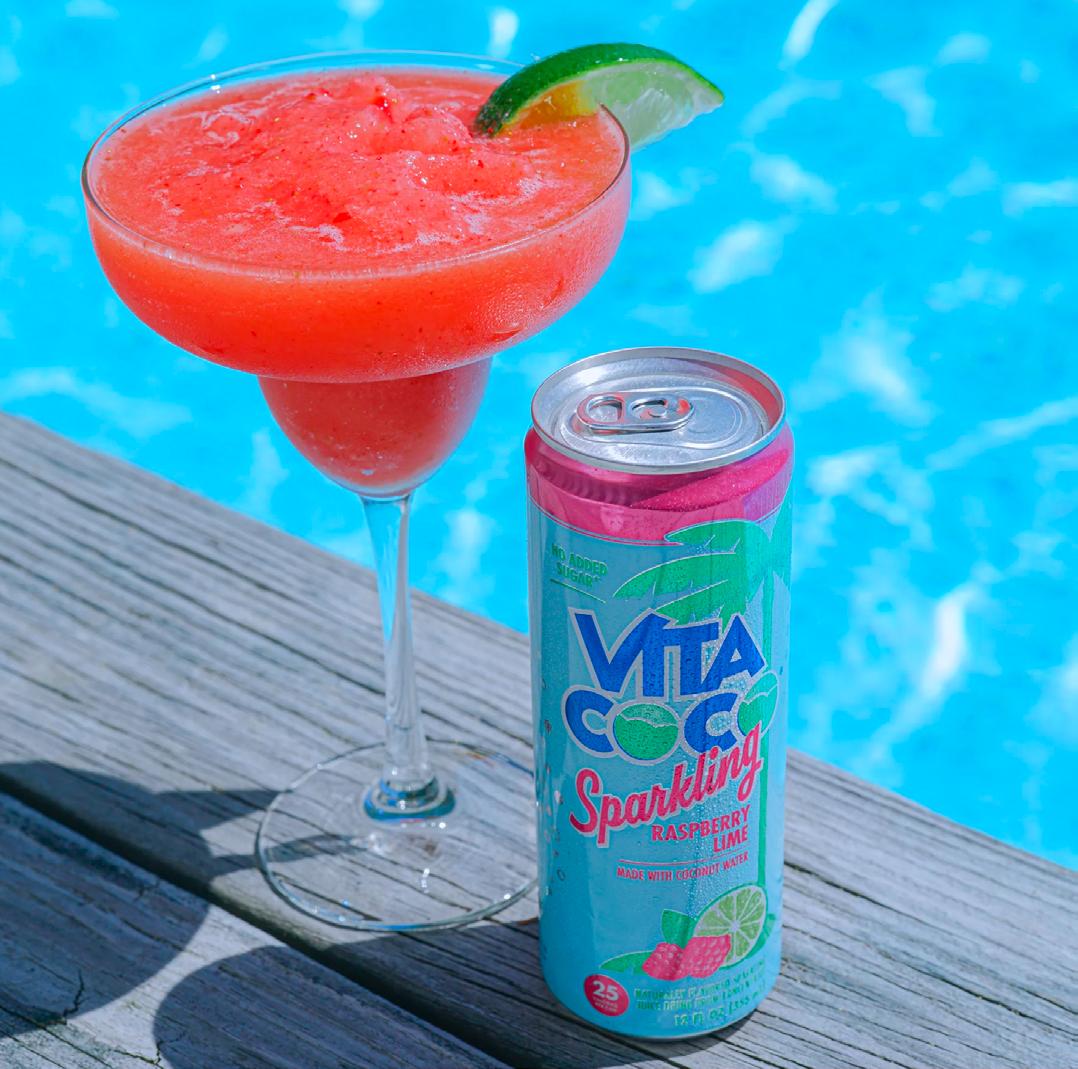

A strategic location, a large consumer base, and an impressive reform program give fresh impetus to Egypt’s food industry, driving it into the de facto giant in the Middle East and North Africa.
By Paul OngetoThe food processing sector plays an economically important role in Egypt. As of 2022, the sector contributed 24.5% of GDP and accounted for 14% of Egypt’s total exports. Additionally, the sector is an important source of employment, providing about 7 million job opportunities, or 23.3% of the country’s workforce. As Egypt works to achieve its vision of becoming one of the largest
20 global economies by 2030, the food processing sector is going to be a key determinant of whether this vision will be achieved. Acknowledging its central role in the country’s economy and vision 2030, both the government and private sector have collaborated in both policy formulation and investment to drive the sector's growth. The country’s large consumer base (about 102 million) and its strategic location at the crossroads between Africa, Europe, and the
Middle East have also worked in Egypt's favor, attracting growing interest from both local and global investors. In this issue, we explore the progress that Egypt's food industry has made so far and the opportunities that lie ahead for players in the sector.
Any thriving food industry has to be supported by a vibrant agricultural sector; Egypt is no different. Supported by rich natural conditions around the Nile, Egypt’s agricultural sector is one of the largest in the Middle East and Africa. According to recent forecasts from USDA, Egypt will produce 14.4 million metric tonnes (MMT) of Sugar cane, 11.77 MMT of sugar beet, 9.8 MMT of wheat, 7.4 MMT of maize, and 2.9 MMT of rice in 2022. In all these products, Egypt ranks highly on the continent in terms of output. It's the largest African wheat and sugar beet producer and ranks in the top ten list of other commodities. Overall, the sector accounts for 14 percent of the country's GDP, represents 28 percent of job opportunities and 55 percent of rural employment in Egypt.
Despite being a top producer, Egypt’s appetite for the same products far outweighs demand, forcing the country to import to meet the supply shortfalls. Today, the North African country is the world’s largest importer of wheat and is a significant buyer of other commodities such as rice and maize. In 2022, the country will import 9.2 MMT of corn, 4 MMT of soybean, and about 600,000 MT of rice, according to USDA forecasts. USDA notes that imports of corn and soybean have been on the rise to meet the feed demand of its growing poultry and aquaculture sectors.
Desert conditions notwithstanding, Egypt is a major agricultural produce exporter. The country’s prized foreign exchange comes from citrus fruits, potatoes, onions, tomatoes, strawberries, fresh and dry beans, garlic, and watermelon. Egypt is the largest exporter of citrus fruits in the world, with oranges accounting for approximately 80% of Egypt’s total citrus crops. In September 2021 to June 2022 export season, Egypt's agricultural exports rose 11.4%
to US$2.47 billion, compared to US$2.217 billion during the same period for the 2020-2021 season, according to data from the Agriculture Export Council. AEC in another report indicated that the country exported more than 3.5 million tonnes to more than 150 countries globally in the first 5 months of 2022. Top on the list was citrus fruits, recording 1.48 million tonnes, followed by 746,950 tonnes of potatoes, then 152,560 tonnes of onions.
A major food producer, Egypt maybe, but its population, which numbers 102.3 million, far outstrips the country’s local supply. This forces the country to rely on imports. According to the USDA, 40 percent of Egypt’s imports are food and agricultural products. Wheat accounts for the bulk of these imports.
To reduce reliance on imports, Egypt plans to increase agricultural production by 30% by 2024, according to the Minister of Planning and Economic Development. In line with this, Egypt is targeting to increase the area of the
wheat crops by 1.5 million feddans over the next three years per a new study conducted by the Egyptian Cabinet's Information and Decision Support Center (IDSC). The 20202023 Agricultural Innovation Project (AIP) is also part of this robust agricultural improvement plan. The initiative aims to

EGYPT EXPORTED MORE THAN 3.5 MILLION TONNES OF AGRICULTURAL PRODUCTS TO MORE THAN 150 COUNTRY GLOBALLY IN THE FIRST MONTH OF 2022, ACCORDING TO THE AEC
promote innovations in technologies to improve several issues in agriculture, such as inefficient farming techniques that lower farm output and food production, poor postharvest facilities, and marketing infrastructure.
These efforts will supplement those implemented under the Sustainable Agriculture Development Strategy (SADS) 2030, which targets the use of technology to increase production and enhance efficient utilization of water resources, as well as supports land reclamation projects to increase arable land and establish new communities.
SADS has already brought several benefits to Egypt. There has been, for instance, a comprehensive increase of around 23.6 percent in wheat production during the 10 years between 2010 and 2020, according to Statista. These annual increases continue, with the 2022 USDA forecast being 8.9% higher than that of 2021. A new irrigation system

that is heavily reliant on technology has been deployed in some areas to help farmers better utilize the country's limited water resources. Eman Essa, a farmer that currently uses the system, told Reuters in an interview that since she adopted the system, her water usage has dropped by 20% while her labor costs have reduced by nearly a third.
The USAID, as a development partner to Egypt, has also been critical in this success. According to its website, the Agency has invested about US$1.7 billion in the country's agriculture sector, assisting more than 500,000 Egyptian smallholder farmers to purchase land, improved farm management techniques and access to financial services, and liberalized agricultural markets. “Since the late 1990s, Egypt has increased agricultural export revenue by 1,500 percent with USAID support,” the agency said.
Citrus accounts for close to half of Egypt's exports. Among the citrus fruits, oranges reign supreme, accounting for over 80% of produce. In 2019, Egypt exported almost 1.8m tonnes of oranges, surpassing Spain to become the world's largest supplier of oranges. Russia, remains by far the largest export market for Egyptian oranges, accounting for 20% of total exports in 2021. Other destinations in the top 10 include Saudi Arabia, Netherlands, India, Bangladesh, United Arab Emirates, China, United Kingdom, Ukraine, and Oman.
But how did Egypt become the citrus empire of the world? Policy shift back in 1982, allowing private sector involvement in citrus production, set the chain reaction for the remarkable growth in citrus production seen today.
EXPORTED ALMOST 1.8M TONNES OF ORANGES, SURPASSING SPAIN TO BECOME THE WORLD'S LARGEST
In place of old, largely fragmented fertile fields of the Delta and Nile Valley, private investment funded the establishment of large-scale farms in reclaimed desert lands which today account for the majority of Egypt's citrus exports.
Other than reclamation and greenhouse projects, the government has, for the past three decades, provided for the development of irrigation and extension systems, production, supply chains, and industrial and processing activities. The result has been steady production growth. According to Knoema, the Citrus fruit production in Egypt increased from 890,942 tonnes in 1971 to 4.45 million tonnes in 2020, growing at an average annual rate of 3.90%.
As exports rise, there is a fear that Egypt would hit the export market sealing soon. To avoid such a crisis in the future, Egypt has been looking for other markets. Last April, Egypt reached an agreement to export citrus to Japan, allowing for the resumption of trade after a 25-year ban.
There is also an urgent call for diversification. Valencia oranges comprise 60 to 70% of Egypt's citrus
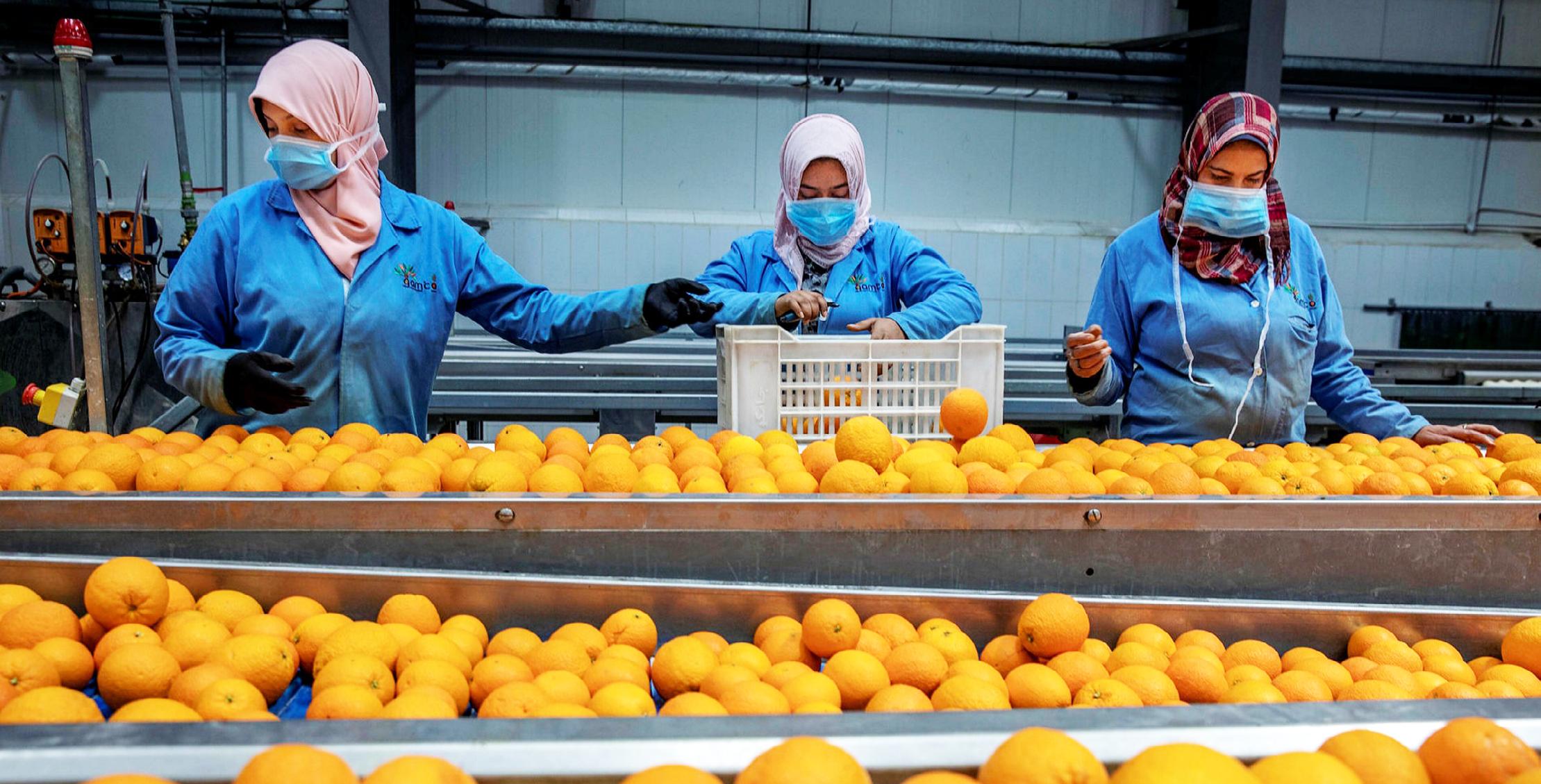
exports, whose market may soon run out. Farmers are already complaining about lower prices due to oversupply in the domestic market. Hussein Marie, a board member of Egypt's largest agricultural NGO–the Horticultural Export Improvement Association–and a managing partner at an exporting company, the Egyptian Growers Organisation has been exhorting many growers not to cultivate the summer [oranges] anymore and instead plant mandarins, grapefruits and lemons to mix it up. Only then will “our reputation as citrus exporters” improve, he adds.
Producing not from concentrate
juice instead of relying on fresh oranges alone could also help Egypt exploit the maximum potential of its juice sector. “There is a massive market in Asia and Europe,” says Marie. Unlike the concentrate, NFC juice can diminish in quality while being transported to far-flung destinations, and its price would even be higher due to its costly transportation process. Given its proximity to both Asia and Europe, Egypt has a higher comparative advantage and could become a favorite, potentially edging out far-flung Brazil, the main player in this industry.
In the seven years up to 2019, the number of companies in Egypt’s food industry increased from 4,000 to 17,000, according to Ashraf El Gazayerli, Chairman of the Egyptian Chamber of Food Industries. About EGP 500 million was invested in the food industry during the same period. All these are testimony to a growing interest in the country from the global food and beverage sector. What’s driving this unprecedented growth? Egypt’s strategic location at
the crossroads between Africa, Europe, and the Middle East, a large consumer base of about 102 million, and an impressive reform program.
The reform program enacted in 2016 has been particularly beneficial to Egypt. "The implementation of reforms along with the gradual restoration of confidence and stability is starting to yield positive results," said the World Bank in a 2019 report. At the time, foreign direct investment, which topped US$10bn in 2018, was expected to close the US$14 billion mark. The monetary and economic reforms also influenced a 2019 Gallup report, which judged Egypt to be the safest country in Africa, the second safest in the Middle East, and the eighth safest worldwide.
in Menoufia province, north of the capital of Cairo, which can house up to 5,000 milking cows and 3,000 beef cattle with a production capacity of 1.5 tons of meat per cycle. Al-Sisi also officially launched similar other facilities via video conference in Nubaria, New Valley, and the Red Sea provinces. The milk from these facilities could significantly help meet the shortfall in supply, which currently stands at 2.2 million tons, and further drive upstream investments in the dairy chain.
Supported by a robust sugar production industry, Egypt’s snack and confection market is a regional juggernaut with a market volume estimated at US$33.63 billion in 2022, according to Statista. Major drivers of this sector include foreign multinationals Mondelez and Nestle and homegrown giant Edita Foods. In 2015, Mondelez Egypt invested about US$131 million in the expansion of its operations to meet rising demand. A year later, industry peer, Nestle revealed that it had invested around EGP100bn (US$12.8bn) in Egypt over the past five years and anticipated “similar investments” in the coming years in an attempt to secure the country as an important center for trade and production. Local giant Edita Foods has been making moves of its own. In 2019, it secured a US$20 million loan from IFC to bolster its position in Egypt. In a statement, the company revealed plans to invest the money in new product lines, and potentially acquire new companies in the sector.

The dairy and beverage sectors have beneffeted the most when it comes to investments. Some of the big-ticket investments that have flowed into this sector include the US$345 million investment into dairy and juice company Beyti by Almirai and PepsiCo in 2014, the US$100 million fruit juice factory by Saudi Arabia-based Aujan Coca-Cola, and the US$136 million investment by local dairy and giant Juhayna. Other investments include the US$24 million by dairy farm Dana to expand production and the new factory set up by the Sakhr group to double its production of dairy and juice products. Beyti recently announced that it was investing US$16 million to build new production lines, demonstrating the potential for future investments in the sector despite the millions already invested in infrastructure and capacity expansion.
Meat has also seen significant investment as the nation tries to meet the gap in supply, which is currently estimated at 430,000 tons annually. In June, Egyptian President Abdel-Fattah Al-Sisi inaugurated a complex in Sadat city
Although billions of dollars have been invested in the Egyptian food industry, opportunities for further growth still exist. Statista projects Egypt’s food industry, with a market volume of US$158.60bn in 2022 will grow annually by 8.85% (CAGR 2022-2027). According to El Gazayerli, sectors with huge growth potential include packaged milk along with frozen semi-prepared products and on-the-go snacks. Egyptians consume around 10 liters of milk a year compared to the global average of 42 liters, proof of the yetto-be-tapped potential. Investment in not for concentrate juice to tap the existing surplus in orange production and increased investment in meat to bridge the existing gap are also other attractive ventures that investors could dip their feet into.
Egypt’s population currently numbering 102 million is also forecasted to reach 119 million by 2030. That is 17 million more opportunities for the food industry! For those seeking a market beyond Egypt, the country's free trade agreements namely the Common Market for Eastern and Southern Africa (COMESA), the Greater Arab Free Trade Area (GAFTA), and the EU-Egypt Association Agreement, provide access to a larger market of about 1.2 billion people. These markets already account for over 80% of Egypt's food exports, and with growth in export volumes projected at 10% annually, investors in the Egyptian market can only expect to reap more from their investments FBA

For the longest time, fats and oils were considered the secret ingredient that made foods delectable. They have also carried a guilty tag, as they are always perceived to have health implications when consumed. However, there is a particular realization that some key organoleptic and structural attributes of a food product require good fat solutions. For example, a bar of good chocolate and associated confectionaries is highly dependent on one main ingredient: cocoa
butter. The ingredient gives chocolates and chocolateflavored products their distinctive taste, texture, structure, sharp melting behavior, high gloss, and long shelf life characteristics.
Being an essential ingredient in chocolate and its confection, the demand for cocoa butter is at an all-time high. According to the 2019 Global Market report, the demand for cocoa butter is anticipated to increase at a compound annual growth rate (CAGR) of 7.3% from 2019 to 2025, yielding US$16.32 billion. However, cocoa butter
comes at a price due to the shortage of cocoa beans supply resulting to its high demand. The fluctuation in production of cocoa beans is influenced by various factors, including extreme weather, disease, pests, speculation, and political instability in producing countries. As a result, cocoa butter, which is relatively more expensive than other vegetable fats, has become a global concern, as it is the major ingredient of chocolate.
In this context, continued research and development efforts on economical vegetable fats resembling the characteristic of cocoa butter have been prompted to partially or completely replace cocoa butter in various applications, especially in chocolate products. Subsequently, this has led to the rise of specialty fats dubbed Cocoa Butter Alternatives (CBA).
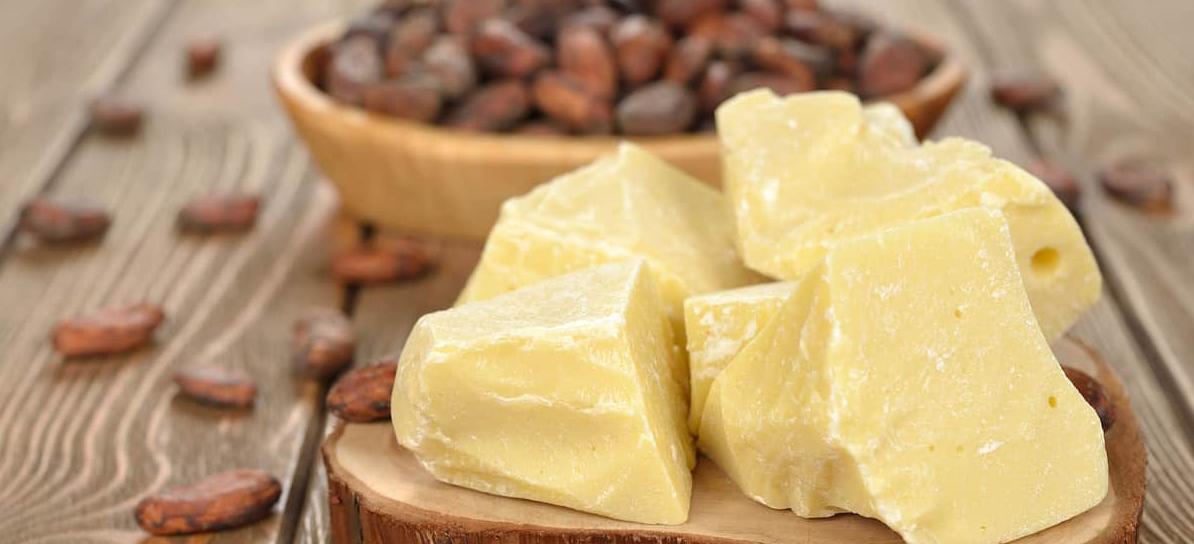
Other than economic reasons, Cocoa Butter Alternatives have been formulated to have distinct characteristics and superior functional properties compared to their traditional counterpart. This superior trait is attributed to the modified crystal structure of fat molecules in them, which allows for customized applications.
The formulation of chocolate that is to be used on a biscuit or cake is fundamentally different from the formulation used when the chocolate is in tablet form. Tablet chocolate needs to be ‘hard’ and have a ‘snap’ so that it can be broken into pieces when eaten, whereas a biscuit or cake may be eaten ‘as a whole and the teeth used to break the biscuit into bite-sized pieces with the chocolate naturally melting in the mouth. This means that the chocolate on an enrobed baked product may be ‘softer’ than that used in a tablet.
Although they are just stand-ins, specialty fats are particularly valued for their potent phytonutrients, and characteristic aroma and flavor. These attributes are typically stripped during the extraction and refining of commodity oils, as manufacturers generally focus on producing a final product that is mostly neutral triglycerides. In the case of specialty fats and oils, the processes of extraction and
purification focus on preserving the potential beneficial components in the oil, along with those that contribute to the flavor and aroma of the oil.
In pursuit of finding suitable Cocoa Butter Alternatives, leading industry players such as AAK, Cargill, Olam Food Ingredients Wilmar International, Bunge Loders Croklaan, Fuji Oil, and ISF, among others, have launched a wide array
COCOA BUTTER GIVES CHOCOLATES AND CHOCOLATE-FLAVORED PRODUCTS THEIR DISTINCTIVE TASTE, TEXTURE, STRUCTURE, SHARP MELTING BEHAVIOR, HIGH GLOSS, AND LONG SHELF LIFE CHARACTERISTICS
of CBAs that are either Cocoa Butter Equivalent, Cocoa Butter Substitutes or Cocoa Butter Replacers.
Cocoa Butter Equivalents (CBEs) are a group of specialty fats that are mostly used to replace cocoa butter in the production of chocolate. They are non-lauric fats that require tempering. According to a report on Cocoa Butter Alternative Fats by Joanna Oracz et al, CBEs must consist of fatty acids, symmetrical monounsaturated triglycerides (POP, POS, SOS) like cocoa butter, and share similar physical characteristics with it including melting temperature, crystallization temperature, melting rate and need for tempering. At the same time, they are compatible with cocoa butter in all proportions, without altering the behavior of the final products. These products are specially formulated from palm oil, shea butter, sal fat, mango kernel far, kokum kernel fat, or illipe butter.
The middle-melting fraction rich in POP is obtained through the fractionation of palm oil, whereas the triacylglycerol cuts rich in POS and SOS are gained from the fractionation of exotic fats such as illipé, sal, and shea fats. The tailor-made fats equivalent to cocoa butter are produced without hydrogenation (trans-fat-free) but from careful preparation and blending of these fractionated materials. Enzymatic interesterification is also one of the latest techniques also explored by processors.
In 2020, supplier Bunge Loders Croklaan (BLC), which specializes in oils and fats solutions for the food industry, tapped the sustainability and health credentials of shea, to offer confectionery manufacturers a cocoa butter equivalent with the same neutral taste, sensory and functional qualities of cocoa butter. The new product, called Karibon, is a
patent-pending 100% shea-based premium Cocoa Butter Equivalent (CBE).
The ingredient was designed to meet the demand for more conscious and sustainable food options without compromising on taste and quality. It may be used to improve the nutritional value of chocolate products, as it is more abundant in stearic acid and has lower levels of saturated fats compared to cocoa butter.
“We’re excited to present a next-generation solution through Karibon, delivering versatile benefits, including better heat stability, fast crystallization, and great sensory experience,” said Imro ‘t Zand, global confectionery innovation lead at Bunge Loders Croklaan. “Shea has a stronger compatibility with cocoa butter and improved bloom stability, enabling smoother processing.”
The launch of Karibon closely follows BLC ramping up its shea production for confectionery and bakery with its first African plant. In September 2020, the shea processing plant in Tema, Ghana, was unveiled and pegged as “the largest of its kind on the continent.”

In the same year, industry competitor AAK developed Illexao, a range of fats suitable for making a “super compound” that can replace up to 100 percent of the free cocoa butter in a chocolate recipe. In turn, this will enable chocolate manufacturers to reduce formulation costs by up to 40 percent with no decline in quality or product stability, the company says.
AAK’s standard super compound solution is a blend of shea butter and palm oil. Alternative exotic fats can be incorporated in line with the chocolate manufacturer’s preferences.
The main fat phase of the “super compound” comprises vegetable fats with a similar composition to cocoa butter. This means it's compatible with cocoa butter, which will allow chocolate manufacturers to use it in their products while continuing to add cocoa mass to their formulations. The compound reportedly delivers equivalent taste, texture, and meltdown properties, as well as a similar nutritional profile.
Asian agribusiness company
Wilmar International also offers a range of sustainable cocoa butter alternatives under its Wilchoc brand, formulated using vegetable oil and exotic fats like Shea fractions or Illipe butter.
Other than replacing cocoa butter with specialty fats that have similar chemical and physical properties, leading manufacturers have also formulated Cocoa Butter Substitutes which are lauric-based, hardened, non-tempered fats with a transfat content of less than 0.5%. CBS creates elasticity, gloss retention, and fat crystallization at lower viscosities. However, they are not compatible with cocoa butter, so can only be used when there is a very low content of cocoa butter present or alongside cocoa powder.

Lauric fats, from palm kernel and coconut, are widely used as a substitute for cocoa butter with hydrogenated and fractionated products found on the market. Because it solidifies at room temperature, it is suitable for coated confectionary products, panning, and mold application. Wilmar International markets its Ultrachoco and Besschoc brands as having excellent eating characteristics and an outstanding melting profile.
Despite having outstanding heat resistance, strong flavor release, and quick crystallization, their sensitivity to mechanical handling and development of bloom during storage below room temperature makes them undesirable options.
in 2019, a new cocoa butter product that delivers "bloom-retarding" effects in chocolate.
Cocoa Butter Substitutes have also been associated with soapy tastes related to hydrolysis to lauric acid. As an alternative solution, Cocoa Butter Replacer (CBR), are non-lauric and non-tempered, hardened fats. They are confectionary fat substitutes formulated from hydrogenated and fractionated vegetable fats and oils such as soybean, cottonseed, and palm oils.
Similar to CBS, Cocoa Butter Replacers will not have any added cocoa butter. However, their tolerance to other fats is up to 20%. The fact that tempering is not required allows for a wide range of modifications, such as the addition of heat resistance or softening of texture, making it suitable for use in coating cookies, wafers, and other confectionery products that are distributed at room temperature.
Blooming, a common problem in chocolate, is the whitening that can appear on the surface of the chocolate, which occurs over the shelf life of a product, especially if stored at varying temperatures – something that is difficult for chocolate manufacturers to control once the product has left their factory. While it is not dangerous, blooming is unsightly and may be unpalatable for consumers. It also harms the overall sensory quality of the chocolate. To offset this, oils and fats supplier AAK launched COBAO Pure
Bunge Loders Croklaan launched its clean label and 'healthier' version of cocoa butter replacer for the confectionery industry in 2019 in an attempt to capitalize on the demand for more healthy options in the Middle East. The product, Couva 806NH, claims to contain low transfat levels (<1%), reduced levels of saturated fat, non-hydrogenated, and non-tempering. As a non-tempering coating fat, it provides more coating flexibility with reduced cracks, making it suitable for coating and enrobing in bakery and confectionery.
Despite the rise in popularity of cocoa butter alternatives, manufacturers are, however, restricted by limits on the use of cocoa butter alternatives in chocolate. EU Directive 2000/36/EC permits only 5% of vegetable fats other than cocoa butter in chocolate products. Under US rules, the Food and Drug Administration (FDA) allows alternative vegetable fats, but products cannot be called 'chocolate', instead they must be labeled ‘chocolate flavor.’ FBA







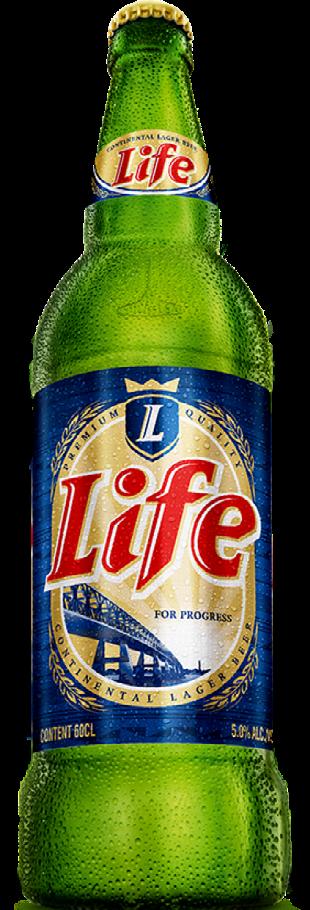




 By Paul Ongeto
By Paul Ongeto
Nigeria has one of the most lucrative alcoholic industries in Africa. 2016 figures from the National Bureau of Statistics (NBS) show Nigerians spent US$570 million on alcohol that year despite raging inflation that greatly constrained household incomes. The figures have been skyrocketing since then as rising employment, coupled with an increasing trend of alcohol consumption
among the youth, drive growth in consumption. At US$2.29 billion, 2019 sales for beer alone were more than 4 times the total alcohol sales of 2020. Players in the sector can anticipate more business opportunities as the market grows at a CAGR of 6.31% during the 2022-2027 forecast period, according to data from market research firm Imarc Group. In this article, we review the alcohol industry landscape in Nigeria, highlighting the key players, recent investments,
trends in consumption, and the prospects that the sector holds for investors.
BEER, NIGERIA’S FAVORITE DRINK
Nigerians love their beer more than any other alcoholic drink. Market data indicates that beer controls over half of the market share (55%), followed by spirits (30%) and wine (15%). The reason behind beer dominance is affordability. Unlike highly priced spirits (US$14) and wines (US$3.44), beers only cost US$0.92 a bottle, putting them within reach of most Nigerians of the legal alcohol drinking age.
The other factor driving growth is the heavy presence of global beer behemoths in the country. The world's largest brewer, AB-InBev, is the majority shareholder of International Breweries, while its close competitor, Heineken, is the majority shareholder of Nigerian Breweries and Champion Breweries. British multinational brewing company Diageo is also represented in Nigeria by its subsidiary Guinness Nigeria. These companies have invested heavily in marketing to stimulate growth and in capacity to meet new demand. AB-InBev spent US$250 million in 2018 on a fourth brewery to launch its Budweiser brand in Nigeria and followed up in 2019 with a US$339 million capital injection via a rights issue in November.

To stave off competition, Nigerian Breweries issued commercial papers worth US$52.5 million to fund its short-term financial requirements. The company further announced a US$130 billion investment into Ama Breweries (owned by Nigerian Breweries) in Enugu State
largest market share in Nigeria by revenue, a position that was previously enjoyed by AB InBev-owned International Breweries.
in southeastern Nigeria in 2022. Through these activities, Nigerian Breweries has been able to keep competition at bay. 2021 revenues of N816.7 billion (US$1.6 billion) cemented the brewer’s position at the top of the Nigerian beer sector, accounting for 54% of all revenues reported by the three largest brewers. Seeking a greater piece of the Nigerian market, Guinness Nigeria invested heavily in marketing, doubling its advertising budget from US$14 million in six months to December 2019 to US$25 million in the corresponding period in 2022. The increase in marketing has created more brand awareness, driving up customer loyalty. The company today enjoys the second
Innovation, particularly around packaging, has also ensured customers are kept coming for more beer. During the pandemic, Nigerian breweries launched its signature beer, Heineken, in sleek 33cl bottles that were not only captivating but convenient for away-from-home consumption. According to Sampson Oloche, Head of Premium, Sessionable, Portfolio, Nigerian Breweries Plc, the sleek combined with strategically placed market campaigns such as "Never Watching Alone" exceeded expectations in terms of market success. “It is currently one of the major contributors to the Heineken volume,” Oloche revealed. Guinness has also launched a can variant of its Guinness Smooth stout, consolidating on the success of the bottled variant earlier launched in the third quarter of 2019.
Beer is certainly a good market to be in Nigeria. The top brewers have been recording a rise in revenues for the past decades. In the industry analysis of their revenue growth from January to June 2022, Prime Business Africa gathered Nigerian Breweries, Guinness Nigeria, International Breweries and Champion Brew generated a combined N599.11 billion (US$1.41 billion). The turnover grossed by the four largest brewers in the country grew 31.2% when compared to the N456.44 billion (US$1.07 billion) they generated during the corresponding period in 2021.
Revenues from beer sales will only rise further in the
coming decade. Market Research projects the market to exhibit a growth of 10.42% per annum for the period 2020-2025. A shift in consumer preference towards low and nonalcohol beers, as well as craft beers, is expected to characterize this market. Heineken is already at the forefront of this revolution having launched its Heineken 0.0 beer in 2020 through local subsidiary Nigerian breweries. Desperados, a low alcohol brand owned by Heineken, is also fast gaining popularity among lovers of low alcohol beers. Smaller independent breweries like Bature breweries are also coming up to tap into Nigeria’s newfound love for craft beer.
When Nigerians are not drinking, their hands are probably holding a glass of vodka, gin, whiskey, or a nicely blended cocktail. It is therefore not surprising that the spirit category is the second most popular, raking in sales of US$288 million annually, which is
equivalent to 30% of total alcoholic beverage revenues. Local products account for 75% of the market with imports accounting for the remaining 25%. Two leading companies, Nigeria Distilleries, and Intercontinental Distillers, dominate the market with their extensive portfolio of brands, including Seaman’s Schnapps, Lord’s Dry Gin, Chelsea London Dry Gin, and Eagle Aromatic Schnapps.

For decades, spirits were eclipsed by beer, but a shift towards affordability and increasing incomes among Nigerians have brought the spirits back to the bar table, driving sales for major distilleries. Today, spirits in Nigeria are packaged in a diverse range of materials. From glass to PET bottles to Sachets, everything is used in Nigeria to deliver the drink to imbibers. Sachets have become particularly popular with low-income earners who, for as low as N50, can get their favorite drink. With Sachets and PET bottles, spirits are ubiquitous in Nigeria, with every retailer, including hawkers by the roadside selling them to eager customers.

Higher incomes, especially among city dwellers, have also created an appetite for premium liquors, which are mostly imported. These drinks ranging from Smirnoff, and Gordon's Dry Gin to Hennessy, and Johnny Walker are also finding their way to market, especially in the swanky clubs of Lagos, Abuja, and Port Harcourt. Reacting to this demand for premium spirits, Guinness Nigeria commissioned a new Spirits production line at its Ogba brewery in Lagos in 2021. The new US$2.2 million line can produce about 600,000 LCUs of the company's iconic spirits brands, including Orijin Bitters per year, in different sizes and formats desired by

The key driver for growth is Nigeria’s emerging middle class which is highly educated and enjoys substantially higher incomes. A 2015 study found that almost all Nigerians who have a liking for wine had tertiary education. Additionally, 83% of all wine consumers in Nigeria were either employed or running their businesses., according to the study. Sleek marketing and the rising number of female alcohol drinkers, especially in large cities, have also contributed to this meteoric rise in wine consumption.
Although wine consumption is on the rise, Nigeria is not a wine-producing country. Most of the wine comes from Europe, which commands 60% of the Nigerian wine market, and South Africa, which commands 22% of the market share. Local wines, such as burukutu and palm wine, also comprise a sizeable share of the market, though supply is not as robust due to limited capacity. Investing in local production could thus be a serious market opportunity for any player in the field. A study in 2015 supports this claim. According to the study, 30.80% of the respondents preferred Made in Nigeria wine, and another 22.82% showed a preference for natural/palm wine, sold as bottled, canned wine, or in traditional kegs. The result also revealed that 54% of the consumer respondents were ethnocentric and preferred their drinks made locally in Nigeria. Improving the quality to meet the standard comparable to the imported one could
consumers.
Although spirits may not overtake beer consumption soon, their growth is certainly going to eat into the market share of beer. Data from Statista shows that spirits will exhibit a compounded annual growth rate (CAGR) of 17.54% between 2022 and 205. To succeed in this rapidly expanding market, brands need to look into ways to align properly with market needs. For example, an effective strategy around category drivers like price, quality, and convenience of their products would ensure they reap the maximum gains.
Unlike beer, which is highly consolidated and therefore difficult to penetrate, the Nigerian spirit market is fragmented, allowing smaller players like Pedrogin Distillery and Steller Breweries to compete with the big players. Pedrogin has reinvented a local spirit called Ogogoro into a premium gin by “combining traditional techniques with modern distillation processes.” The company is already creating a sizeable following among the wealthy patrons in Lagos and has even exported to Ghana, Kenya, and Britain.

Nigerians drank 33.1 million liters in 2021, the highest since Euromonitor International, a London-based market research company, started compiling the data in 2015. If consumers continue sipping wine with the same passion and vigor portrayed in the last few years, Market Research forecast the wine market in Nigeria to reach US$570.90 million (in retail prices) in 2025, increasing at a CAGR of 11.72% per annum for the period 2020-2025.
PALM WINE IS A POPULAR DRINK AMONG NIGERIANS ALTHOUGH SUPPLY IS CONSTRAINED DUE TO LIMITED CAPACITY
thus give wine investors an edge over imported wine in the coming years.
Nigeria has, for a long time, enjoyed some of the lowest alcohol taxes in the region. According to a 2020 report by the Tax Foundation, Nigeria's tax revenue as a percent of GDP was the lowest among the 30 African countries that were subjected to review. At 6.3%, Nigeria was way behind peer South Africa, which had a tax-to-GDP ratio of 29.1% and still lagged the continental average of 16.5%. Noting this disparity, a 2021 World Bank report indicated that Nigeria can generate more than N600 billion (US$1.41 billion) annually by increasing excise duties on tobacco and alcohol as recommended in its Nigeria development update (NDU) report. “To effectively tap into this revenue source, Nigeria could retain the current ad valorem excises but augment them with specific ones,” Rajul Awasthi, a senior tax specialist at the World Bank, said.
Following these recommendations, Nigeria has been raising alcohol taxes. In 2022, the tax of NGN 40 per liter (l) payable on beer and stout is 14% more than the 2019 rate. Nigeria has plans to raise it further to NGN 45 per l and NGN 50 l in 2023 and 2024, respectively. For wines, Nigeria charges a specific rate of NGN 50k per liter in addition to the 20% ad valorem rate. The specific rate will increase to NGN 60k per liter in 2023 and will increase to NGN 70k per liter in 2024. Spirits also have a specific rate of NGN 50k per liter in addition to the 20% ad valorem rate. In 2023, the specific rate will increase to NGN 65k per liter and will further rise to NGN 75k per liter in 2024.
The rise has naturally had operators concerned about their survival, especially as inflation continues to take a chunk of individuals’ real incomes, limiting household spending. At N50 per liter, the proposed increment is expected to impose an additional tax burden of between N10 billion (US$23 million) to N30 billion (US$70 million)
in excise on companies that are already in a loss position. Despite these concerns, beer manufacturers have been making a kill. In the half year ending June 2022, Nigerian Breweries still managed to report a 142.8% rise in Profit After Tax. Even Guinness Nigeria, which had reported a loss of US$831,000 in the Half-year ending December 2020, reported an impressive 147% increase in profit after tax for the full year ending June 2022.
The Nigerian alcoholic industry has come a long way and is currently the second largest on the African continent. It has seen diversification from beer to other alcoholic segments, most notably wine and spirits. The change in landscape is being driven by an emerging middle class and a rising crop of well-informed young consumers desiring variety in their taste experiences. According to a BBC report, the Nigerian legal drinking age population will rise 2.5% for the next five years, bringing to market about 12.2 million by 2025.
With more people coming of legal drinking age, Nigeria will certainly continue to be a lucrative investment market. Based on types, beer will register high growth rates, but surging demand for spirits and wine call for a closer look at these markets to tap into opportunities that may exist
therein. Tax responsibility may be rising, but remains far below Africa's largest market: South Africa. The impact of these taxes should therefore be not of much worry to investors. The profits of the largest investors in the industry should be proof enough that the economy can sustain the high taxes and still deliver record profits, at least in the short term FBA
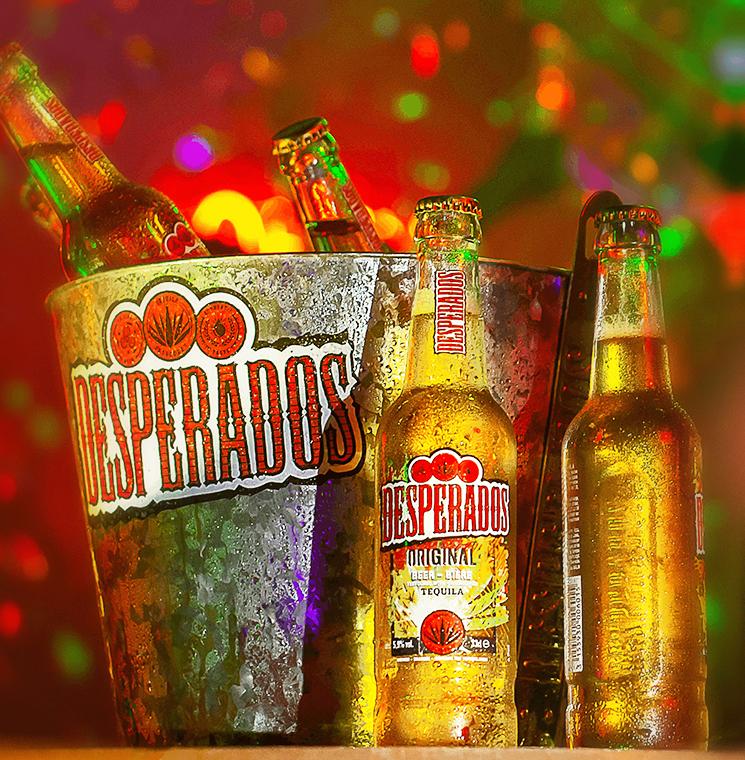
UNLIKE BEER, WHICH IS HIGHLY CONSOLIDATED AND THEREFORE DIFFICULT TO PENETRATE, THE NIGERIAN SPIRITS MARKET IS FRAGMENTED, ALLOWING SMALLER BREWERIES TO COMPETE WITH THE BIG PLAYERS
The food supply chain (FSC) relies on strong vertical integration and coordination among supply chain partners to be effective. Increased globalization and industrialization have, however, made FSC more sophisticated. There are a lot more products and associated information to be moved around the chain, which can be overwhelming. FSC exchange partners have also found themselves under increasing pressure to improve the transparency of their supply chains and enhance the exchange of trusted information. The heightened demand
for information has become a driving factor for the introduction of new technologies that drive FSCs toward a digital and data-driven food ecosystem.

At the front of this transition to digital, is blockchain technology. Although still in the extremely early stages, the technology offers the promise of disruption on a colossal scale across multiple sectors.
The World Economic Forum defines blockchain as a shared, programmable, cryptographically secure ledger that no single user controls and can be inspected by anyone with access to the network. This means that blockchain
provides a decentralized database or a digital ledger of transactions undertaken within the chain by different parties that everyone on the network can see. The transactions undertaken are recorded only once, eliminating the duplication of effort that’s typical of traditional business networks and thus no participant can change or tamper with the shared information. Despite originally finding its use in the financial sector, the technology is increasingly being adopted in other industries, including food and beverage.
Major food companies are already using blockchain to improve traceability, enhance transparency, deter fraud, improve responses to contamination and food-borne illness, upgrade the real-time coordination between trading partners, and substantially ameliorate record-keeping by all concerned parties, enabling faster and more cost-efficient delivery of products. Supporting blockchain adoption is a group of IT giants who have created different blockchain platforms or solutions curated just for the food industry. A few examples include Food Trust and Watson platforms

well to food traceability because it enables entries from any user on the network. In an interview with Food Ingredients First, he further stated that it makes the data stored on the ledger immutable, and it gives full provenance to goods that change hands, which is useful when something has to be traced back to its source.
This has become critical due to multiple scandals and incidences occurring in global food supply chains, such as the horsemeat scandal in Europe, the melamine scandal in China, and the listeria outbreak in South Africa. The flagship use case for blockchain in this context was Walmart's collaboration with IBM to trace pork chop shipments from China, in which a multi-day tracing process got reduced to just two seconds. In 2018, the retailer urged leafy green suppliers to contribute to the blockchain database. The move aimed to ramp up food safety significantly following a US outbreak of E. coli in romaine lettuce that resulted in 210 confirmed cases, caused 96 hospitalizations, and led to five deaths. The industry spent millions of dollars notifying the public, as well as tracing and removing the contaminated vegetables from the market. Further to that, it resulted in a loss of consumer confidence in romaine lettuce, regardless of the growing region, as well as negatively affecting the economic livelihood of many, including farmers.
by IBM, Track and Trace and Leonardo platforms by SAP, Internet of Things solutions by Oracle, ST AMP Supply by Blockhead Technologies, and WayPath by AgriDigital, among many others.
According to Shidan Gouran, the President and CEO of Global Blockchain Technologies Corp, an investment company that provides investors access to a mixture of assets in the blockchain space, the technology lend itself
In Africa, E-Livestock Global, an American venture capital-funded social enterprise, recently launched a firstof-its-kind livestock traceability system in Zimbabwe, bringing end-to-end visibility to the cattle supply chain. The technology powered by Mastercard's blockchainbased Provenance solution aims to empower Zimbabwean farmers to prove the origin and health records of their cattle. It comes on the heels of an outbreak of the tickborne disease in 2018 that led to the death of 50,000 cattle. The lack of a traceability system had seen Zimbabwe unable to export beef to lucrative markets in Europe and
FOOD COMPANIES ARE USING BLOCKCHAIN TO IMPROVE TRACEABILITY, ENHANCE TRANSPARENCY, DETER FRAUD, IMPROVE RESPONSES TO CONTAMINATION AND FOOD BORNE ILLNESSES, AND UPGRADE REALTIME COMMUNICATION WITH TRADING PARTNERS
the Middle East in recent years, reducing export earnings from beef, which are important to the country's economy. The adoption of blockchain will change that narrative.
The interest and awareness of the origins of food for the longest time had been a requisite of processors, retailers, and other food traders. However, consumers have also built up an interest in knowing where the food and food ingredients they consume come from. Other questions on their mind include questions on provenance, authenticity, and the sustainability profile of the foods they eat.

of being linked to deforestation-by providing additional transparency to the movement of the commodity and visibility of its unique attributes,” Andrew Wilcox, Senior Manager, Sustainable Sourcing and Digital Programmes at Unilever, explained.
In the coffee sector, IBM and Farmer Connect unveiled a new mobile application, 'Thank My Farmer', at the 2020 Consumer Electronics Show (CES). The consumer-facing app allows coffee drinkers to trace their coffee and understand its quality and origin in addition to supporting the farmers that grow the beans. The development helps coffee companies meet growing consumer expectations of traceability and ethical consumerism.
Traceability of food products is not just tied to product origin, but also involves the capture, storage, and transmission of information about food products throughout the stages of the supply chain from farm to fork, fostering transparency. Transparency emerged as one of the top trends for 2021 as more and more consumers became increasingly concerned about the composition of the foods they get off supermarket shelves. An Innova Consumer Survey indicated that 85 percent of consumers globally say information on what is in their food is of major importance to them. Similarly, 59 percent want to know where their food comes from and how it is made. According to the market researcher, 50 percent of consumers say that they are at least somewhat likely to check a QR code if it appears on a pack to gain insight into the product from farm to fork. Blockchain takes this ambition further, functioning as an
Earlier this year, Unilever piloted SAP blockchain technology for deforestation-free palm oil. According to the consumer goods giant, the "first mile" of the commodities supply chain presents a particular challenge. This is the stage between plantation and milling, where raw materials like palm oil are often mixed with non-verified sources. This means that origin information is either lost or hidden. The company believes that blockchain can help strengthen traceability in that ‘first mile’ of its palm oil supply chain.
“This technology absolutely can help Unilever and partners to manage the complexities that come from very long supply chains–particularly for crops that are at risk

"immutable" supply chain record. The cutting-edge technology provides rapid identification of the history, movement, and current location of consumer products, covering all critical information.

Nestle and Carrefour partnered to use the IBM Food Trust platform for their GUIGOZ Bio infant formula range, after successfully applying the blockchain technology to mashed potato brand, Mousline purée. To get information on the source of raw materials, production date, quality control parameters, storage times, location of warehouses, and date the product was placed on the store shelves, consumers use their smartphones or other devices to scan a QR code on the product's packaging.
The French multinational retailer has also been using blockchain technology to improve the traceability of several of its food products including Auvergne chicken and farmhouse fattened chicken, tomatoes, eggs, and Carrefour Quality Line oranges and micro-filtered full-fat milk, with all the products featuring QR codes on their packaging.
Other leading food manufacturers
utilizing blockchain technology to give consumers access to key product information embedded on QR codes include Kraft Heinz for its children’s foods division, El Ordeno for its TRU milk brand, and Danone through its Track & Connect service on its baby formula farm-to-fork journey, among many other processors.
Utilization of blockchain technology has also found precedence in the aquaculture sector with fish and seafood suppliers Raw Seafoods Inc, Cermaq salmon, Labeyrie, and Sjømatbedriftene the Norwegian Seafood Association, partnering with leading technology solution providers to explore the use of blockchain technology in improving food safety along the seafood value chain. The platform collects data on fish origin, its hatching time and date, breeding conditions, time of its transfer to seawater, the kind of vaccination given, harvesting time, and storage conditions, among other factors.
Rajendra Rao, general manager of IBM Food Trust explained that digitization will play a critical role in shortening the time taken to track any food chain. "Traditionally, tracing the origin of a given food product could take days, if it was possible at all, especially for wild-caught sea scallops. By reducing that time frame to a matter of seconds, we’re able to solve three of the core consumer concerns that
deter them from enjoying seafood: safety, sustainability, and authenticity.”

To validate the information given by the different participants along the food value chain, blockchain avails room for certifying agencies and bodies to verify the claims made, such as sustainably sourced, organic, or faith-
based tags such as kosher or halal. Through this, it reassures customers and offers simpler regulatory compliance. Other than enhancing the integrity of credence claims, utilization of blockchain will curb food fraud, which currently stands at US$52 billion each year, according to PricewaterhouseCoopers estimates.
“Traceability isn't just a big deal in the case of recalls, it is also a big deal in the case of substantiating claims about certain goods,” says Gouran.
"For example, how do we know that fair trade coffee is 'fair trade?' Do we know where it comes from, or do we simply take it in good faith?" Gouran muses. “Similarly, how do we know that food labeled as kosher or halal meets the standards? Supply chain fraud in all the forms that it can take is a big deal, particularly for more sensitive goods.”
Nestlé utilizes blockchain to trace the growing origins of its Rainforest Alliance-certified coffee brand, Zoégas. To enhance trust and transparency around the product, The Rainforest Alliance provides its certification information, guaranteeing the origins and sustainability practices of the coffee growing.
Meanwhile, The Sustainable Shrimp Partnership (SSP) has collaborated with IBM to use its Food Trust ecosystem to provide complete traceability of SSP shrimp for their consumers. The platform also ensures verification of the shrimp’s SSP qualification, e.g., adherence to the Aquaculture Stewardship Council (ASC) Standard. Like SSP’s initiative, Bumble Bee Foods utilizes blockchain to record its tuna operations and display’s Fair-trade certification, giving customers peace of mind that their money is not being used to fund unethical practices like slave and child labor.
Transparency and Traceability have firmly entered the mainstream of company Corporate Social Responsibility
agendas. Blockchain has mostly tapped into these trends. Due to its immutable, transparent, and decentralized nature, the technology has lent itself to making trade quick, less paper-intensive, more compliant, and inclusive contracts, reducing costs. This is especially good for small businesses, which are disproportionately affected by red tape at the border, and for government agencies seeking to improve reliability and facilitate trade. Also, by giving way to new information architecture for the food supply chain and replacing existing siloed databases, blockchain streamlines processes.
In 2021, Covantis, an alliance of global agribusinesses founded by ADM, Bunge, Cargill, Louis Dreyfus Company, and Glencore Agriculture, launched a transformational blockchain platform for the global commodities trade. The alliance partnered with market-leading technology providers like ConsenSys, as well as Microsoft Azure Cloud and Cognizant, to deliver an innovative, best-in-class technology platform to transform global trade by connecting the agri-industry via an independent and trusted digital platform.
Meanwhile, AB InBev, a multinational drink and brewing company has partnered with US-based FinTech company BanQu to develop the first-ever, blockchain economicidentity technology solution that enables a secure, immutable platform and creates economic opportunities for small-scale farmers in Africa. The solution first piloted in Zambia in 2018 has since then been rolled out in Uganda, India, Brazil, and Tanzania, recording all transactions between the drink makers and farmers supplying the organization with raw materials, creating better visibility of the supply chain. AB InBev has also integrated a digital money transfer service on the platform, enabling direct and immediate deposit of payment to farmers.
Blockchain technology has emerged as a promising technology with far-reaching implications for the food industry. Many companies have experimented with this new technology and have found success and enhanced capabilities. The expected explosive growth of 85.9% from 2022 to 2030, according to Grand View Research, is proof of the demand for such technologies not only in the food industry but in the entire business landscape. Its importance to the food sector is certainly expected to continue growing exponentially as more consumers demand more accurate information about the history of the foods they consume. Even in Africa, where uptake is low, adoption is expected to become widespread soon as consumers on the continent become more informed and producers work to enhance the effectiveness and safety of their supply chains. The next step is to make blockchain technology more economically viable and build industry-wide acceptance from a majority of food producers, supply chain participants, processors, and the government FBA

Salt, one of the oldest and most ubiquitous food seasonings, is essential for life in general, and saltiness is one of the basic human tastes. The mineral composed primarily of sodium chloride (NaCl) has a special place on many dinner tables globally. Without it, most of our foods from breakfast to dinner would be bland. Concerns are, however, emerging that maybe we love our salt a little too much. In 2016, research from the Centers for Disease Control and Prevention said that 90% of children and 89%
of adults in the U.S. consume more than the recommended sodium levels. A year later, CDC researchers found that 71% of the salt consumers eat is found in processed and restaurant foods, but only 5% of the salt consumed is added at the table.

Regardless of the source, we are taking too much salt and health professionals are worried. You see, too much salt is associated with an extensive list of illnesses, including
hypertension, and it is the leading risk factor for cardiovascular disease. According to a study published in European Heart Journal, consumers who always add salt to their food have a 28% higher risk of premature death compared to those who never add the seasoning. The study, which surveyed 501,379 people who filled out a questionnaire on the frequency of adding salt to foods on the UK Biobank, adds that men who said they always add salt lost an average of 2.3 years of their lives, while women who always add salt lost an average of 1.5 years.
According to the 2017 Global Burden of Disease (GBD) Study, a diet high in sodium is ranked as the leading dietary risk factor for deaths and disability-adjusted life years (DALYs) globally. The study adds that habitual consumption of excessive sodium, most commonly through the consumption of salt, predisposes individuals to hypertension, which is a major risk factor for CVD, the leading cause of premature death worldwide.
Letting go of salt is, however, not as easy as ABCD. Apart from the use of salt in small quantities in our households, this important additive
of
joined together to call on the UK Government to prioritize a health policy for the food industry by introducing comprehensive and mandatory salt targets. Addressing the government, the group said most salt intake comes from purchasing food, with processed foods contributing to 75% of daily salt intake. They added that despite the Food Standards Agency successfully setting voluntary salt reduction targets in 2004 across more than 80 categories of processed food, "progress has since stalled."
is used on a large scale in different food companies for various reasons. It flavors food and is used as a binder and stabilizer. It is also a food preservative, as bacteria can't thrive in the presence of a high amount of salt. salt also plays other, lesserknown roles in the food we eat as an essential nutrient, color enhancer, and texture improver.
The association of salt with poor health is certainly a source of concern to nutritionists and other health sector players. In April this year, a group
Led by the Heart and Stroke Foundation SA and including experts in the field of salt reduction, the Association for Dietetics in South Africa (ADSA), the Nutrition Society of South Africa (NNSA), and the Consumer Goods Council of South Africa, Salt Watch has a created a lobby group for South Africa health watch. The lobby is working in association with World Action on Salt and Health (WASH) to launch a major national awareness campaign in trying to push for salt reduction in South Africa and create an awareness of healthy living amid changing lifestyles among the people.

AVERAGE NUMBER OF YEARS LOST BY MEN WHO ALWAYS ADD SALT TO THEIR FOOD
Even as more countries, including UK and Kenya, are now opting for structural or regulatory approaches, efforts must be urgently accelerated and replicated in more rigorous monitoring and evaluation of strategies to achieve the salt reduction target of 30% by 2025 set by WHO.

Among the regulations in place to foster salt reduction include salt taxation in Fiji, Hungary, Mexico, Saint Vincent, the Grenadines, and Tonga. In these countries, the tax on high-salt foods is being implemented as part of a broader set of taxes that cover other nutrients or foods. For example, in Mexico, an 8% tax is applied to nonessential foods that exceed energy density limits, including salty snacks. An additional 5 countries, namely the Cook Islands, French Polynesia, Indonesia, Palau, and Thailand, are also considering salt taxation. In Thailand, the government proposed a salt tax (2019) that will target salty foods such as frozen products, canned foods, and instant noodles while in Portugal, a proposed tax on foods high in salt was considered in 2018 but ultimately not approved by the Parliament.
Where legislation is not in place, some countries have instructed any food processor to have a front-of-pack labeling scheme that accounts for sodium or salt content. The schemes include endorsement logos and symbols, percentage daily intake or guideline daily amount, traffic lights, ratings, and health messages, aimed at informing
consumers about the amount of salt in a product. Examples of endorsement logos and symbols used in different countries are the healthy choices logo, the keyhole logo, the heart symbol, the healthy living guarantee mark, and the protective food logo. Rating systems such as the Health Star Rating and Nutri-score are being used in countries such as Australia and New Zealand, and France, respectively. In Kenya, the law mandates the label to declare the category of reduced salt as either ‘low salt’ or ‘very low salt’ or ‘saltfree, and the declaration shall be close to the name of the product.
Food and Drug Administration, a US agency under the
CONSUMERS WHO ALWAYS ADD SALT TO THEIR FOOD HAVE A 28% HIGHER RISK OF PREMATURE DEATH COMPARED TO THOSE WHO NEVER ADD THE SEASONING, ACCORDING TO A STUDY PUBLISHED IN THE EUROPEAN HEART JOURNAL
Department of Health and Human Services, has a dietary guideline for Americans, that recommends limiting sodium intake to 2,300 mg per day for people 14 years and older: and even less for those 13 years and younger. In the UK, the government has implemented the High in Fat, Salt and Sugar (HFSS) advertising legislation to come into effect later in September/ October this year to help consumers achieve and maintain a healthy weight. The legislation, through introducing and reworking products to be HFSS compliant, will take away the lure created by advertising for non-HFSS compliant products. The foods affected will include soft drinks, pizza, bagged snacks, cakes, desserts, ice cream, chocolates, biscuits, sugar confectionery morning goods, milk-based and juice-based products with added sugar, ready-to-eat Meals, bread and battered Products, and potato products. To encourage further efforts of this kind, PAHO/WHO's SaltSmart Consortium last year approved an action plan that recommends measures including publicawareness campaigns to educate consumers about food labels, and negotiations with food processors on voluntary reductions in the salt content of their products.
Efforts by the government are necessary, as many consumers are unable or unwilling to regulate the amount of salt they take. A global survey by The Ajinomoto Group found that 64% of U.S. consumers know salt is bad for them, but only 41% try to control their intake. Limiting their access to salt is thus the only effective way that nations have to reduce the daily salt intake of many consumers.
Taste is key in the acceptability of any food. Removing salt from foods would leave many foods bland and unattractive to many consumers. To promote population-level salt reduction, the World Health Organization recommends intervention around three core pillars: reformulation of processed foods, consumer awareness, and environmental changes to increase the availability and affordability of healthy food.
When it comes to reformulation, potassium chloride (KCl) is turning out to be a God-send alternative. Many manufacturers are now using potassium chloride when formulating low-sodium or reduced-sodium products. According to flavor supplier Morton Salt, pure potassium chloride acts as a replacement for salt and as a taste enhancer, processing agent, stabilizer, gelling agent, and preservative. The salt, according to Morton, is suitable for a broad range of products, including meats, soups, sauces, snacks, dairy, prepared meals, sides, bread, and baked goods. Where complete salt replacement is not practical, a blend of equal parts of high-purity, food grade, granular sodium chloride, and potassium chloride is used. According to Morton salt, this blend “imparts a similar degree of saltiness and functionality as common salt while contributing only half the sodium”. Recently, researchers
in the Netherlands studied the dietary impact of replacing various levels of sodium chloride and concluded that replacing sodium chloride with potassium chloride, particularly in key sodium-contributing foods, would help the general population better meet recommended sodium reductions and potassium intake guidelines.
Another viable alternative to salt in foods is monosodium glutamate. According to the CEO and co-founder of Whole30, Melissa Urban, monosodium glutamate (MSG) enhances the flavor in foods, bringing out the savory, or umami, qualities. MSG contains about one-third of sodium as salt, proving that opting for MSG instead of salt reduces sodium consumption. The Food and Drug Administration











that uses a weak electrical charge to stimulate how the tongue experiences saltiness. The scientists say the developed commercially available chopstick-shaped device for daily use by those following a low-sodium diet or trying to reduce their salt intake can be adapted for Western cutlery.
(FDA) has declared MSG to fall under the generally recognized as safe, or "GRAS" umbrella.
Potassium chloride does taste a bit salty, but too much of it and you taste a metallic bitterness. MicroSalt, a US company, is working to help manufacturers reduce salt without necessarily having to resort to potassium blends. The company uses a patent-protected technique to reduce the size of the salt particles, increasing the surface area that comes into contact with the tongue and thus increasing perceived saltiness. Smaller quantities of table salt can thus be used without impacting taste. MicroSalt says the technique can be used to reduce the amount of salt used in dry topical applications, such as chips, tortilla chips, nuts, crackers, and popcorn, without altering the final taste. According to the company, it performs better than table salt for product adhesion thanks to the microsize of the salt particles.
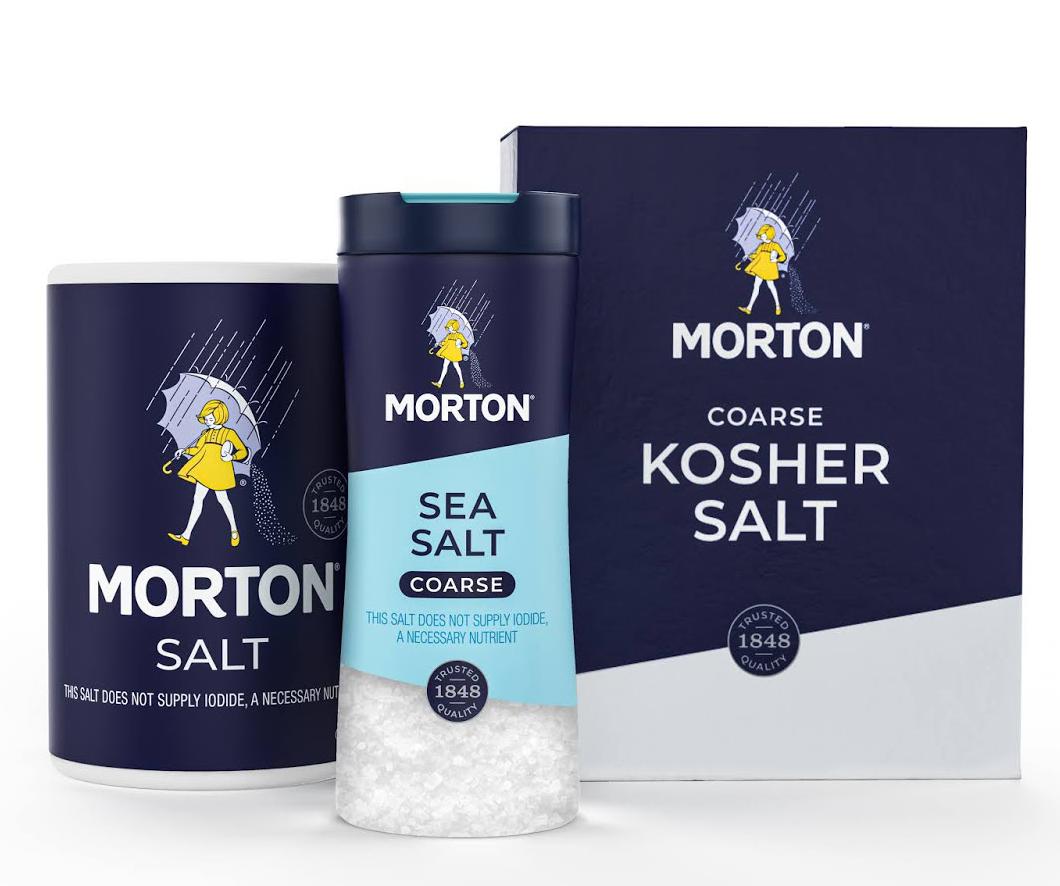
For the radical formulators, new technologies are emerging that promise to deliver greater salt reductions without compromising
on taste. One such technology is microwave-assisted thermal sterilization (MATS). The technology out of Washington State University uses microwave technology to kill any pathogens in food. Researchers have, however, found that with MATS it could be possible to reduce sodium while maintaining safety and tastiness. The researchers, including WSU's Sasha Barnett, Shyam Sablani, and Juming Tang, found that MATS-prepared mashed potatoes could have up to a 50 percent reduction in salt but still be enjoyable to the tasting panel.
As researchers in WSU focus on processing technologies, those in Japan are taking a more radical strategy. To also reduce salt intake and the eventualities it causes, scientists claim that knives and forks that send an electrical current to the tongue can enhance the saltiness and possibly the savouriness of low-sodium foods and may help millions stick to a lowsodium diet without sacrificing taste. With this in mind, researchers at Meiji University and Japanese food and beverage company Kirin have designed a chopstick-like device
The rising number of solutions to salt reduction is proof enough that salt reduction is indeed possible. From the age-old swapping of sodium with potassium to more recent solutions such as MicroSalt and MATS, salt reduction at the food industry level is possible. It is good that these solutions are coming to market when there is an ever-expanding list of jurisdictions curtailing high salt use in processed food. This means that mandatory reformulation does not have to extensively impact flavor. Solutions from companies like MicroSalt give hope that salt reduction strategies can
even extend to home applications. We are positive that soon, healthconscious consumers will no longer have to be worried that foregoing salt in their soup will have them eating bland food that tastes almost like dishwater FBA
MICROWAVE ASSISTED TECHNOLOGY HAS POTENTIAL TO REDUCE SALT BY UP TO 50% WHILE STILL MANTAINING SAFETY AND TASTINESS OF THE FOOD.
MORTON SALT IS ONE OF THE LEADING SUPPLIERS OF SALT REDUCTION SOLUTIONS






